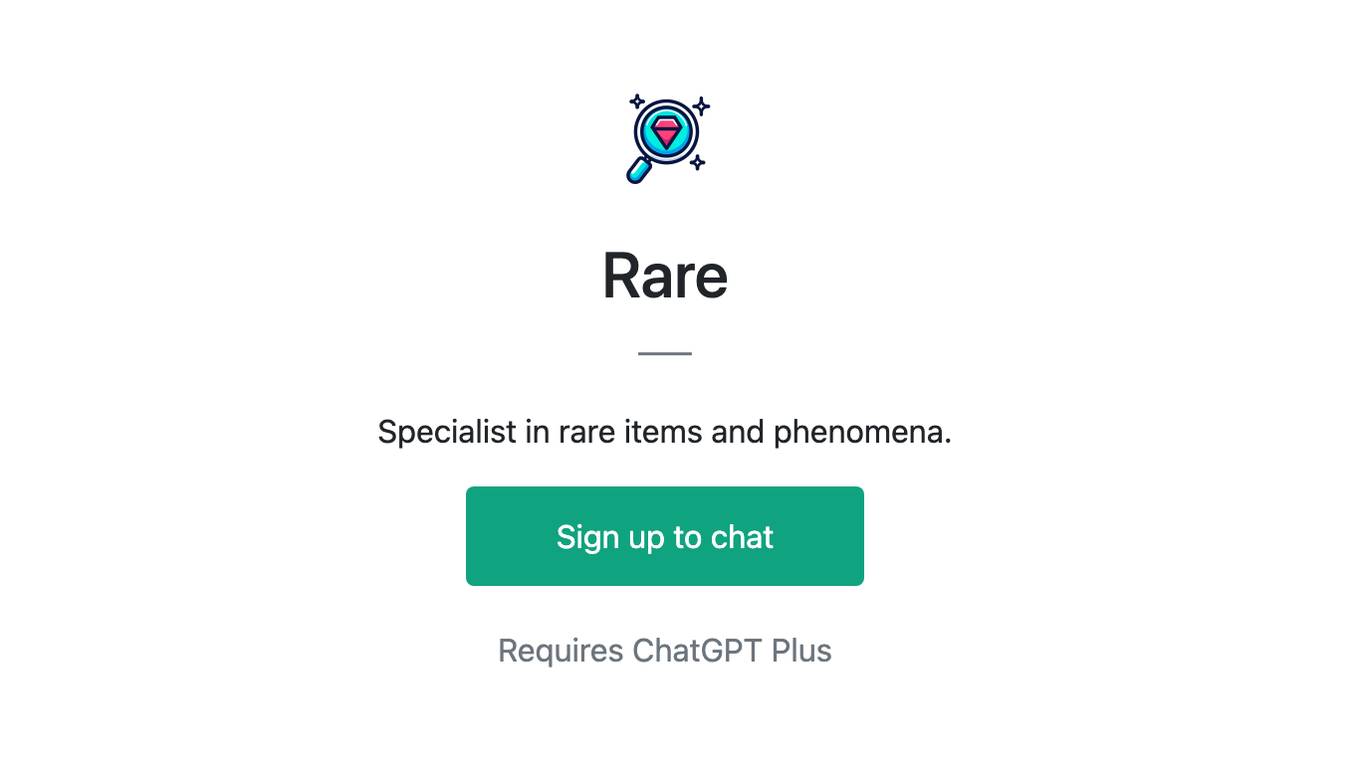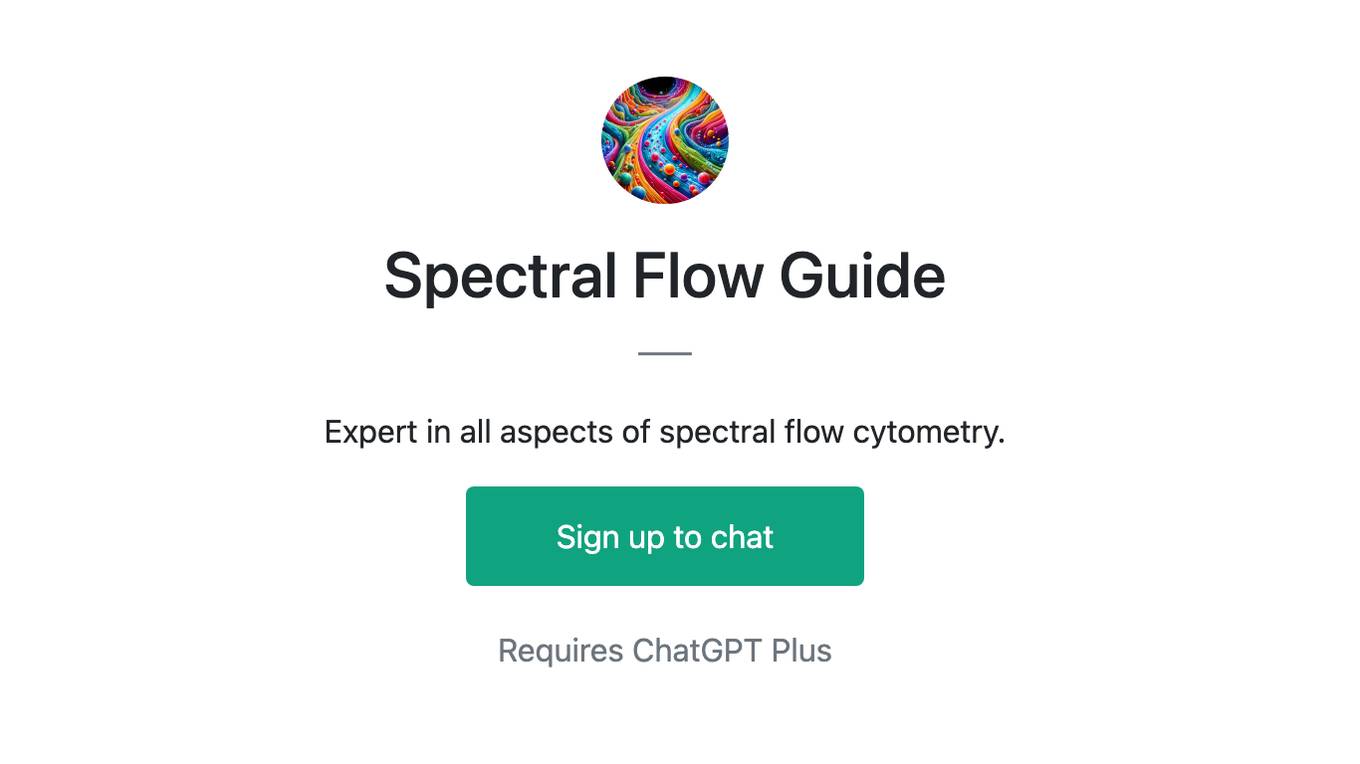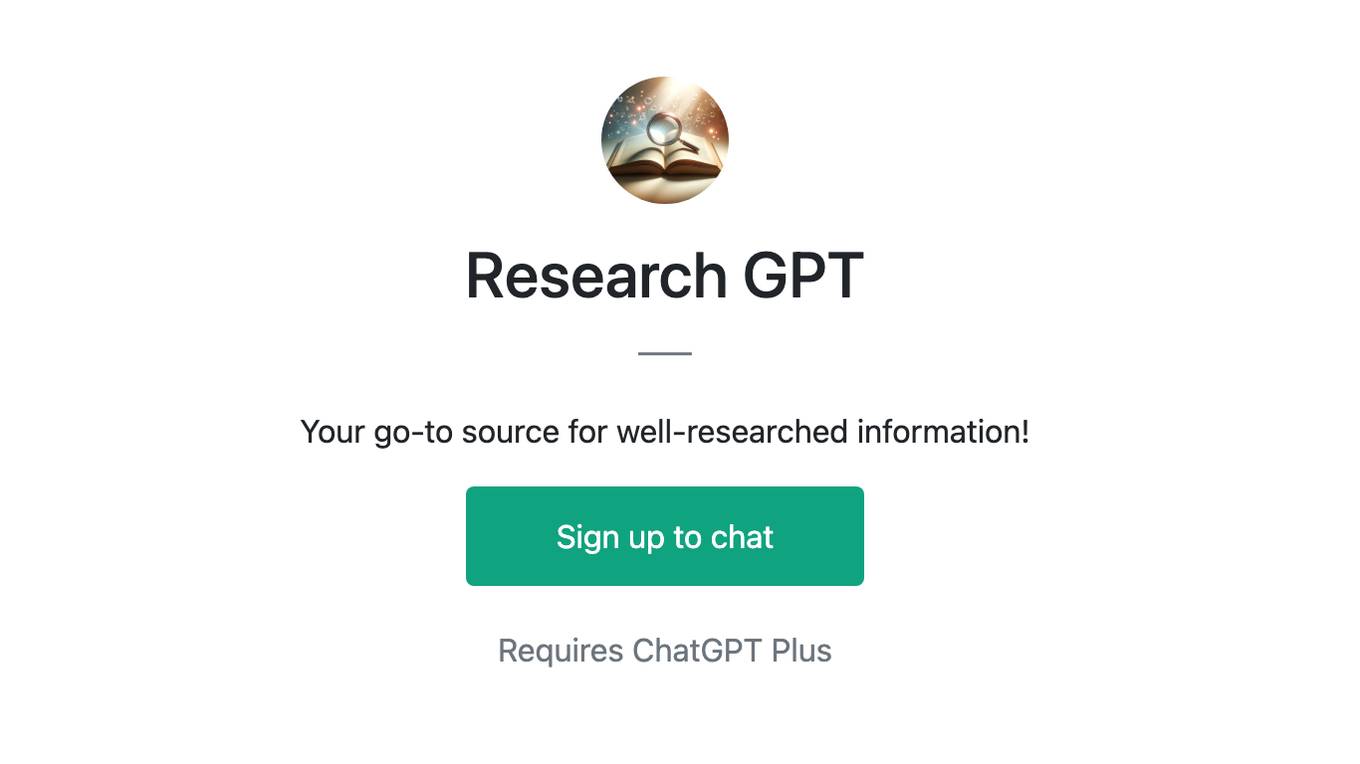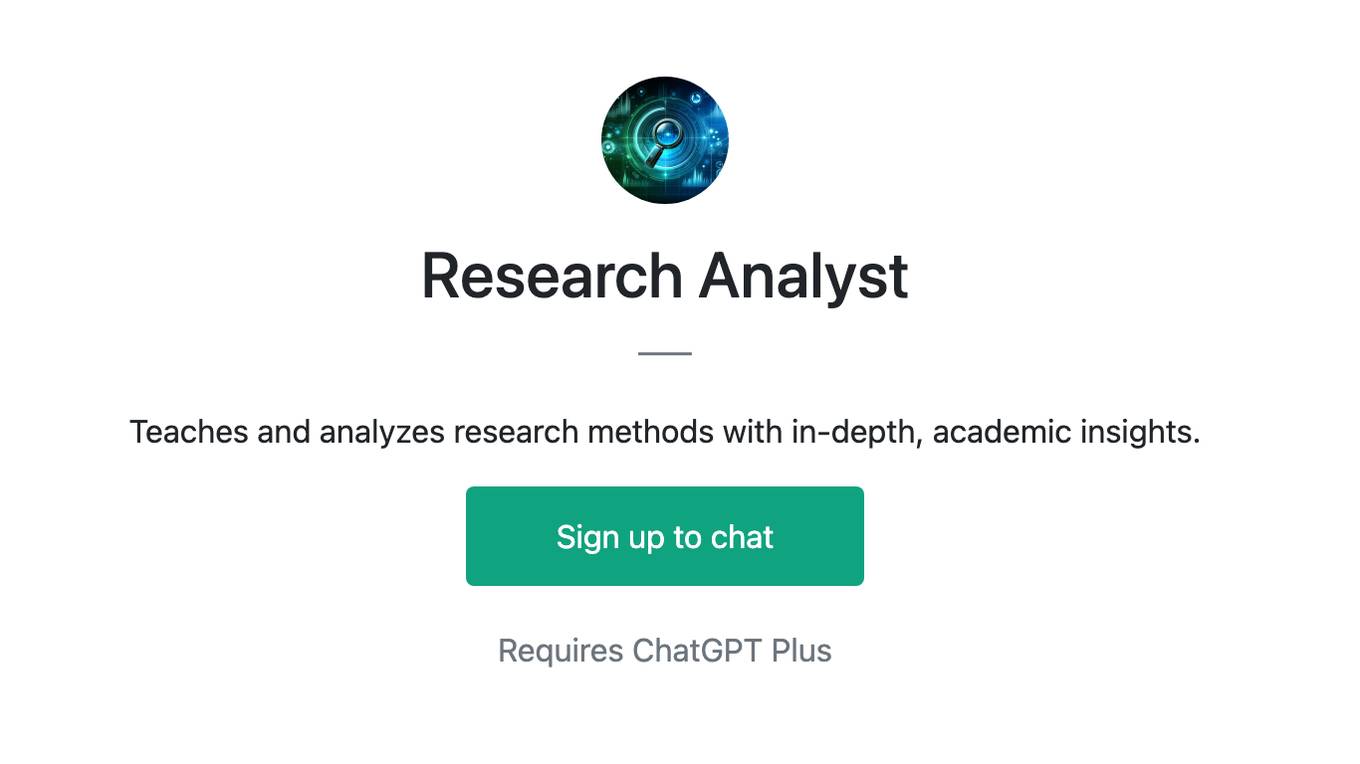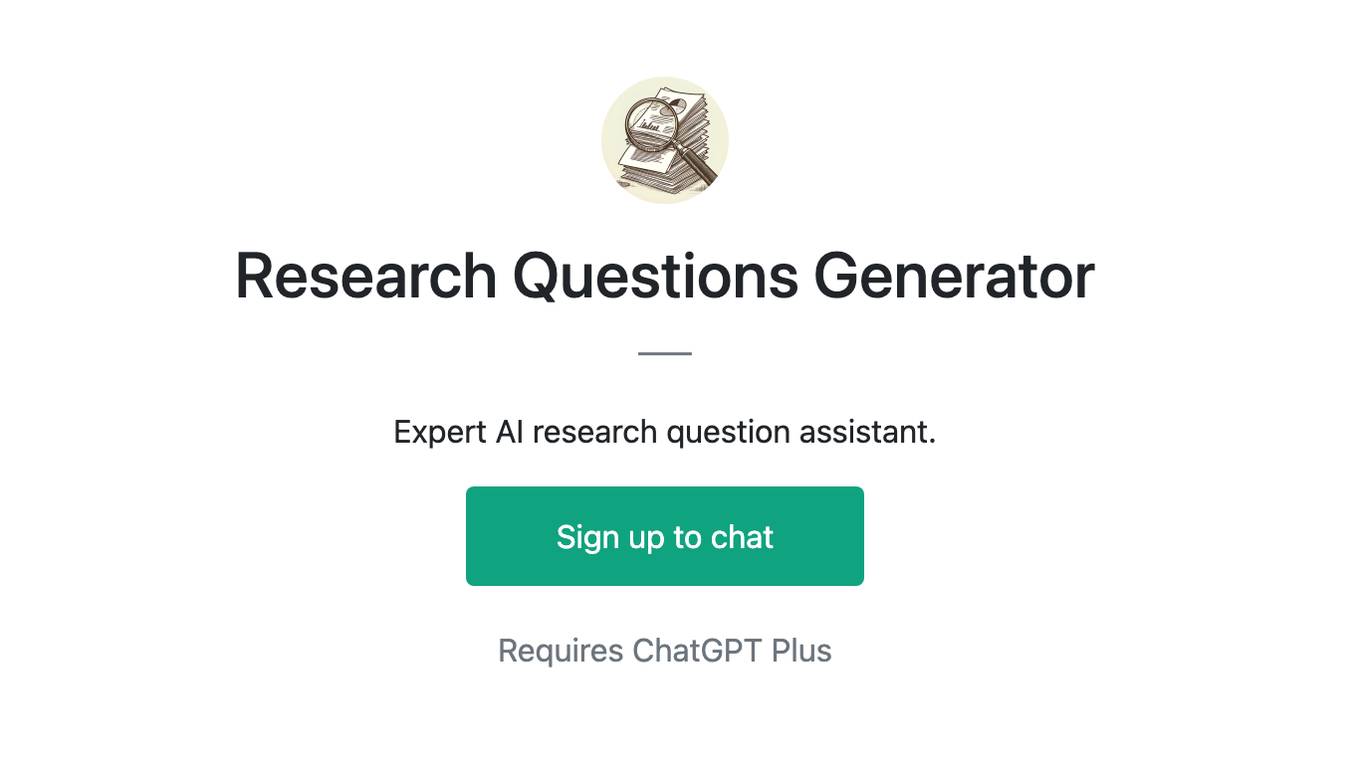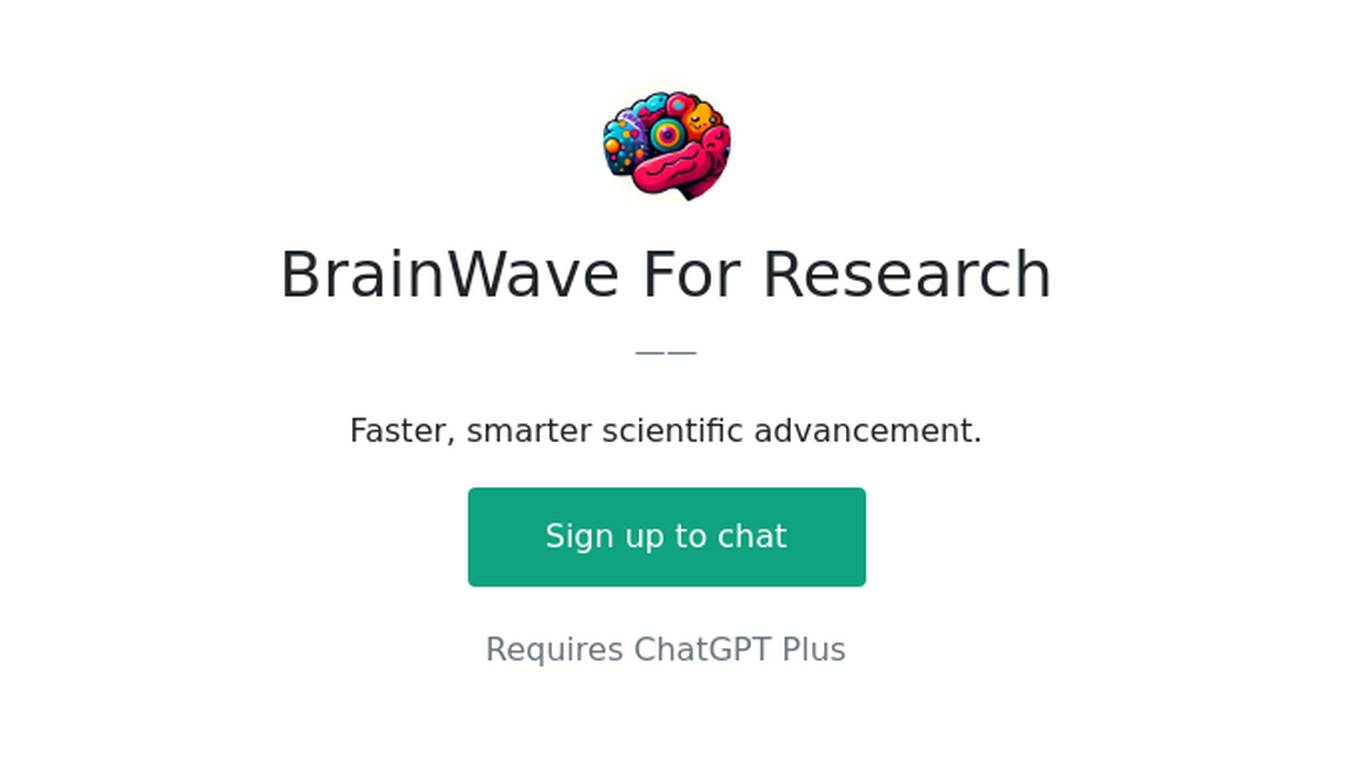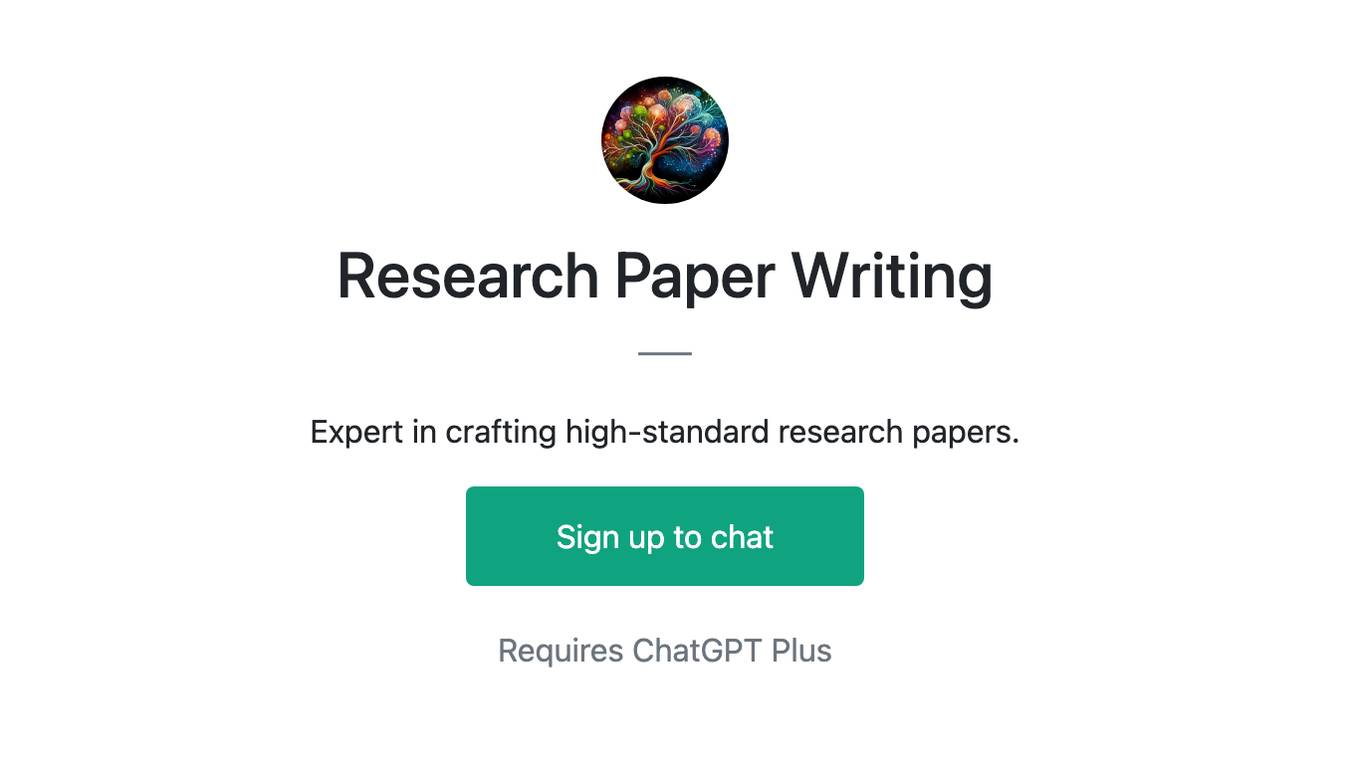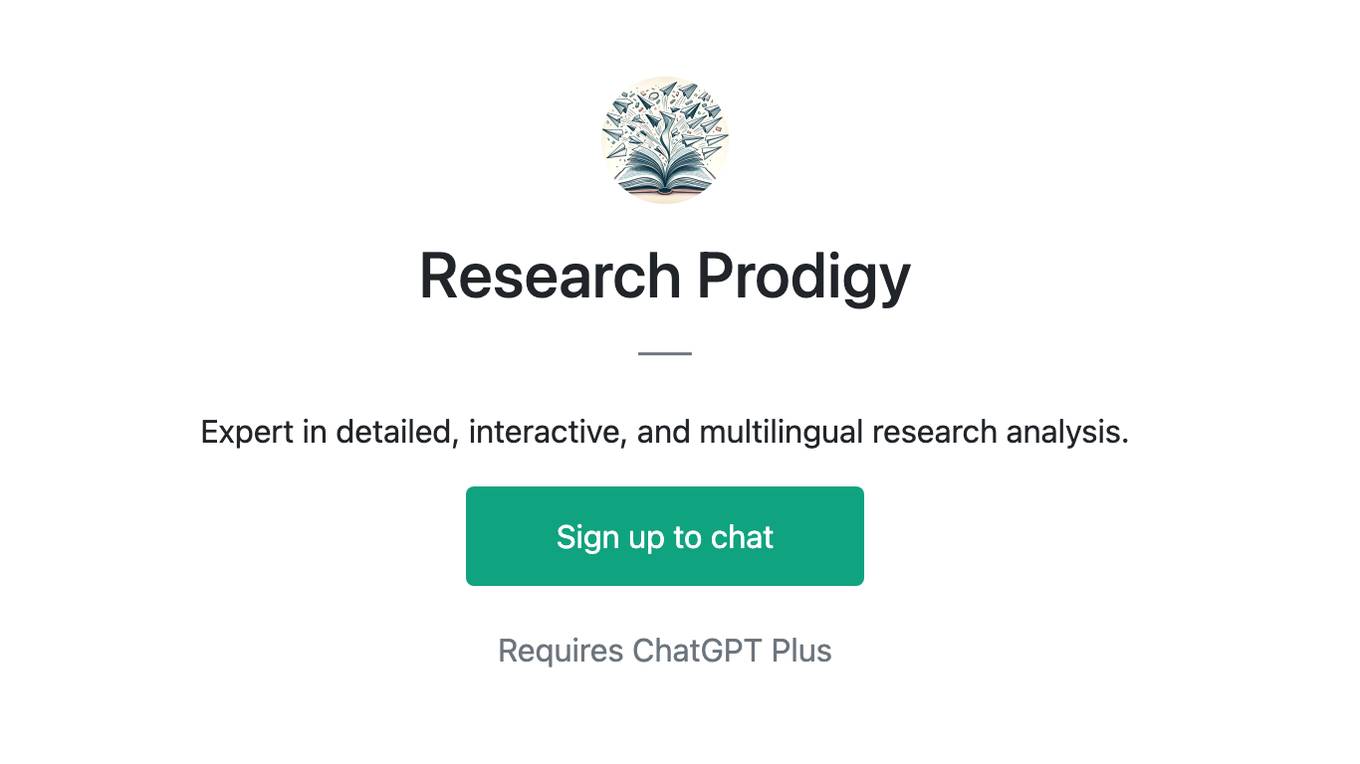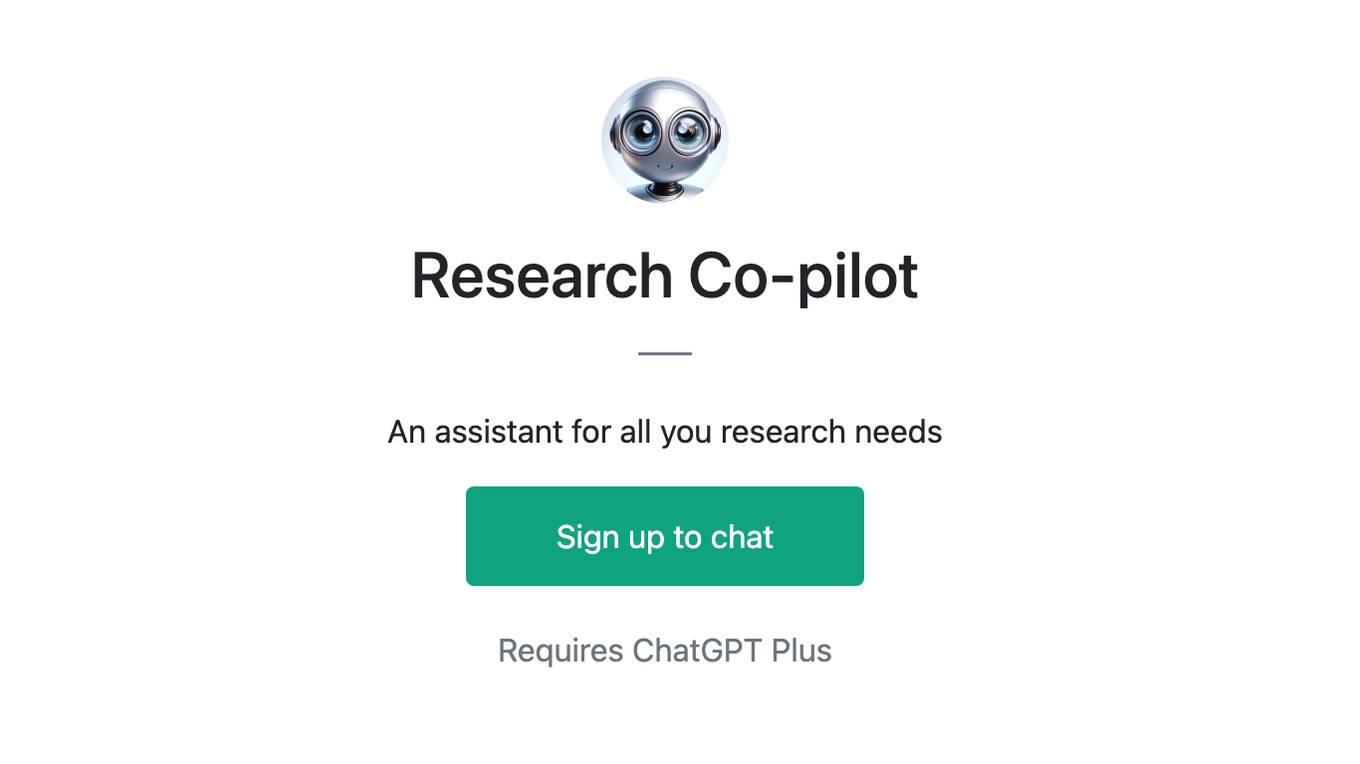Best AI tools for< Research Rare Phenomena >
20 - AI tool Sites

Google Research
Google Research is a leading research organization focusing on advancing science and artificial intelligence. They conduct research in various domains such as AI/ML foundations, responsible human-centric technology, science & societal impact, computing paradigms, and algorithms & optimization. Google Research aims to create an environment for diverse research across different time scales and levels of risk, driving advancements in computer science through fundamental and applied research. They publish hundreds of research papers annually, collaborate with the academic community, and work on projects that impact technology used by billions of people worldwide.

Google Research
Google Research is a team of scientists and engineers working on a wide range of topics in computer science, including artificial intelligence, machine learning, and quantum computing. Our mission is to advance the state of the art in these fields and to develop new technologies that can benefit society. We publish hundreds of research papers each year and collaborate with researchers from around the world. Our work has led to the development of many new products and services, including Google Search, Google Translate, and Google Maps.
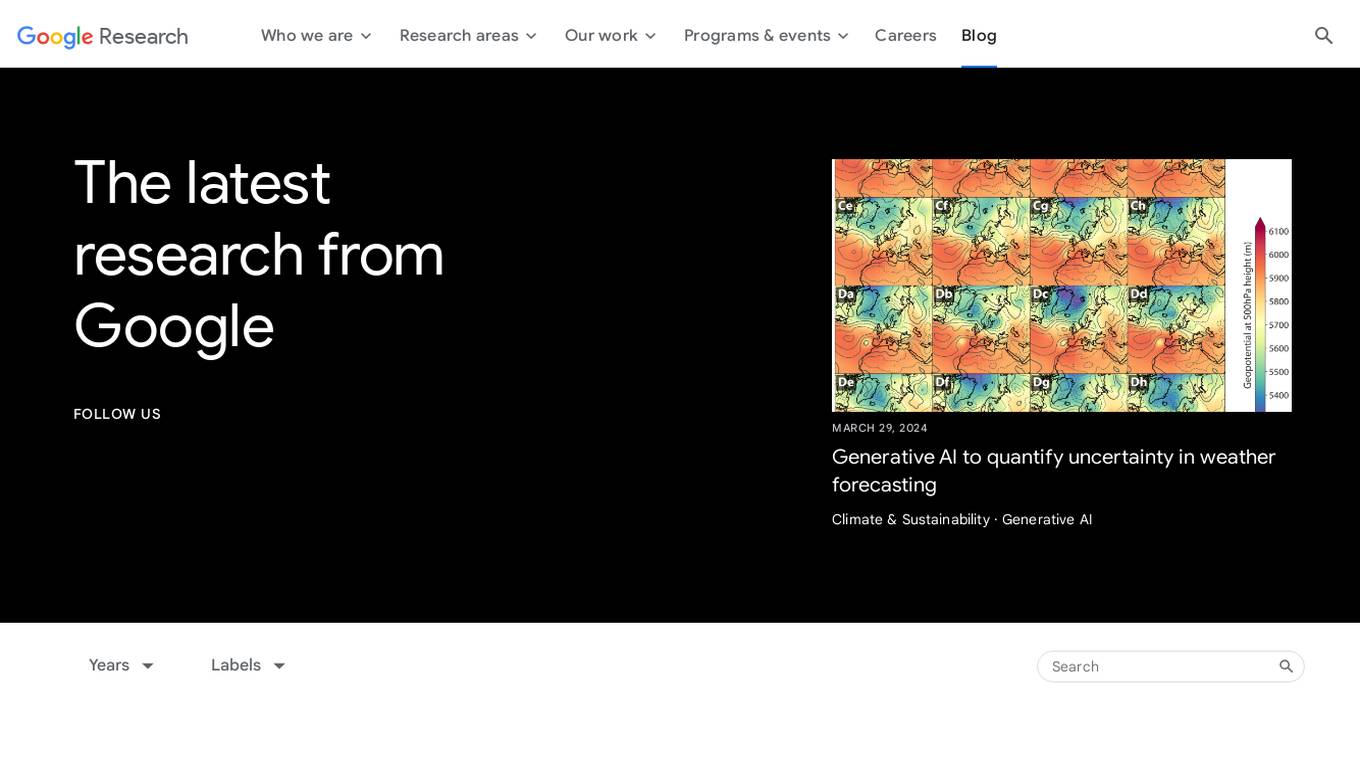
Google Research Blog
The Google Research Blog is a platform for researchers at Google to share their latest work in artificial intelligence, machine learning, and other related fields. The blog covers a wide range of topics, from theoretical research to practical applications. The goal of the blog is to provide a forum for researchers to share their ideas and findings, and to foster collaboration between researchers at Google and around the world.
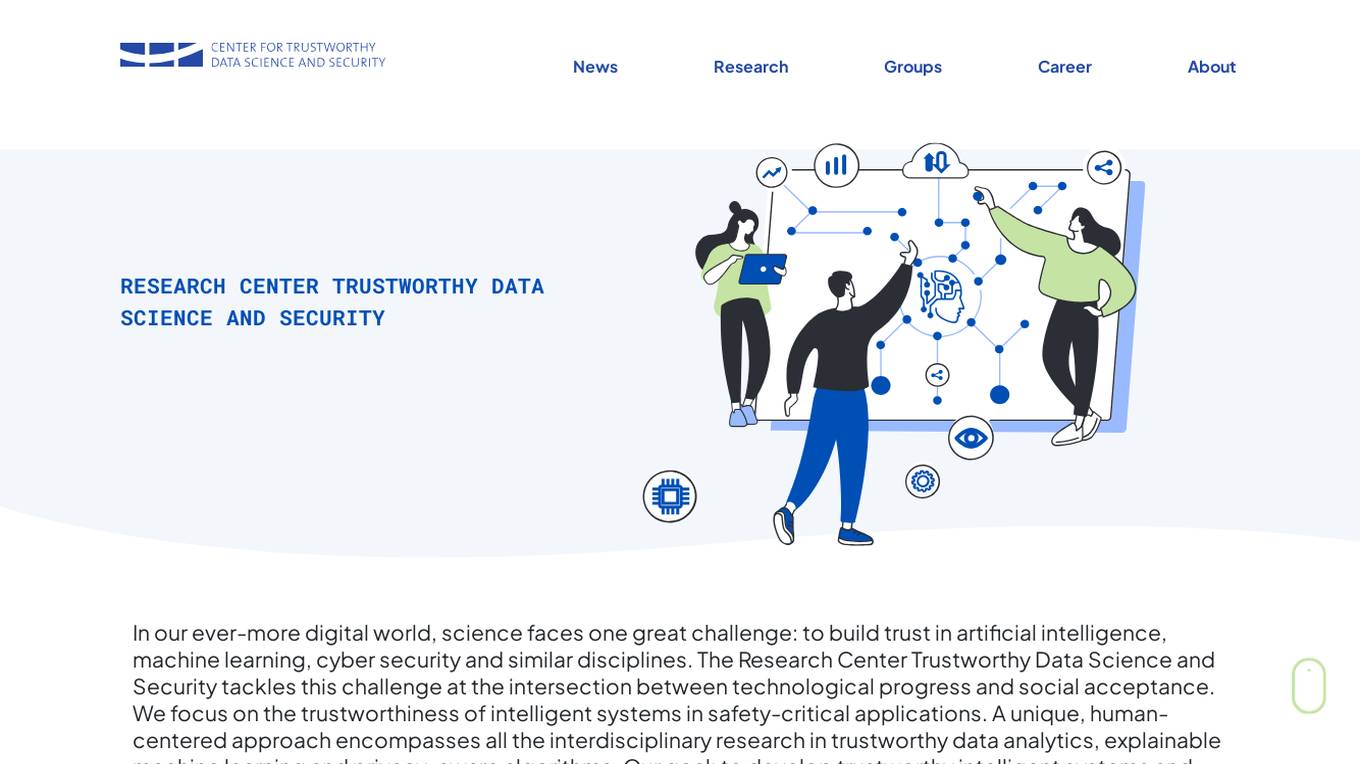
Research Center Trustworthy Data Science and Security
The Research Center Trustworthy Data Science and Security is a hub for interdisciplinary research focusing on building trust in artificial intelligence, machine learning, and cyber security. The center aims to develop trustworthy intelligent systems through research in trustworthy data analytics, explainable machine learning, and privacy-aware algorithms. By addressing the intersection of technological progress and social acceptance, the center seeks to enable private citizens to understand and trust technology in safety-critical applications.

Research Studio
Research Studio is a next-level UX research tool that helps you streamline your user research with AI-enhanced analysis. Whether you're a freelance UX designer, user researcher, or agency, Research Studio can help you get the insights you need to make better decisions about your products and services.
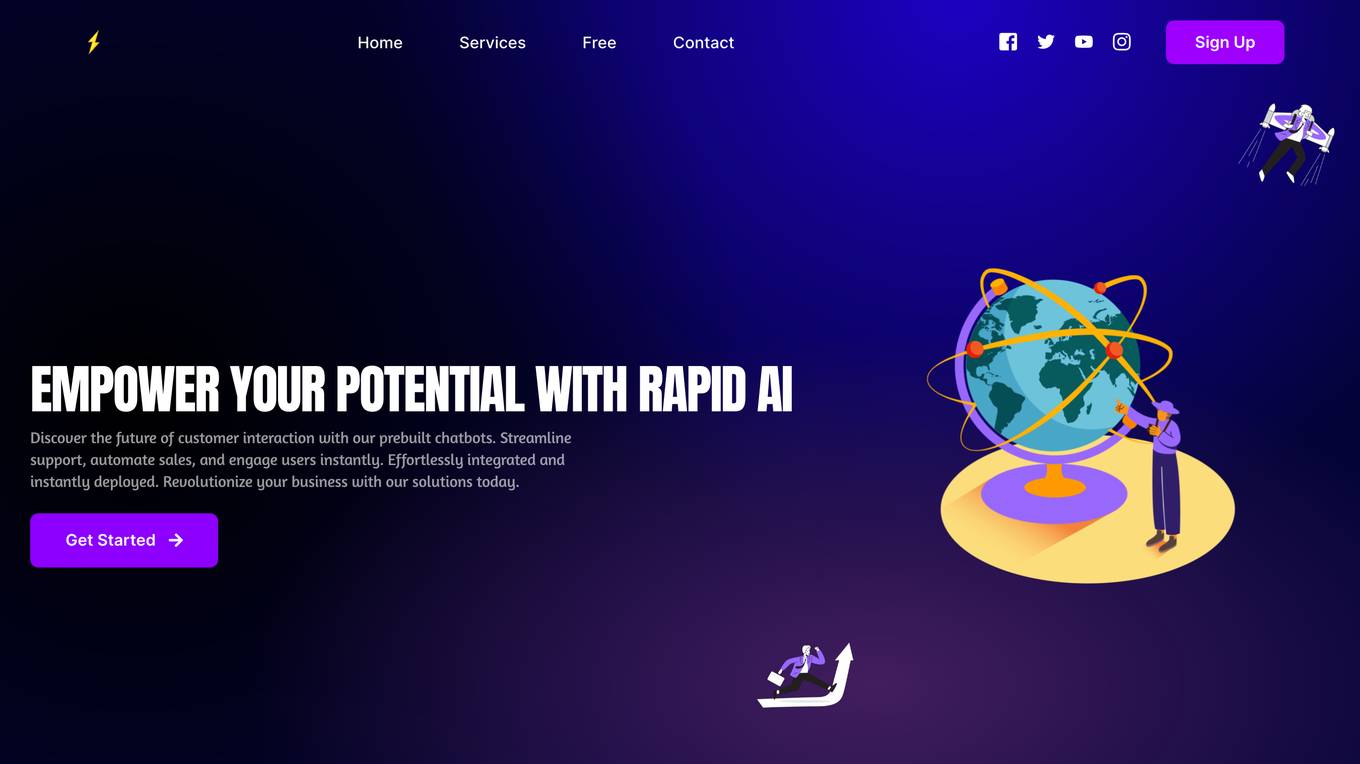
RapidAI Research Institute
RapidAI Research Institute is an academic institution under the RapidAI open-source organization, a non-enterprise academic institution. It serves as a platform for academic research and collaboration, providing opportunities for aspiring researchers to publish papers and engage in scholarly activities. The institute offers mentorship programs and benefits for members, including access to resources such as internet connectivity, GPU configurations, and storage space. The management team consists of esteemed professionals in the field, ensuring a conducive environment for academic growth and development.
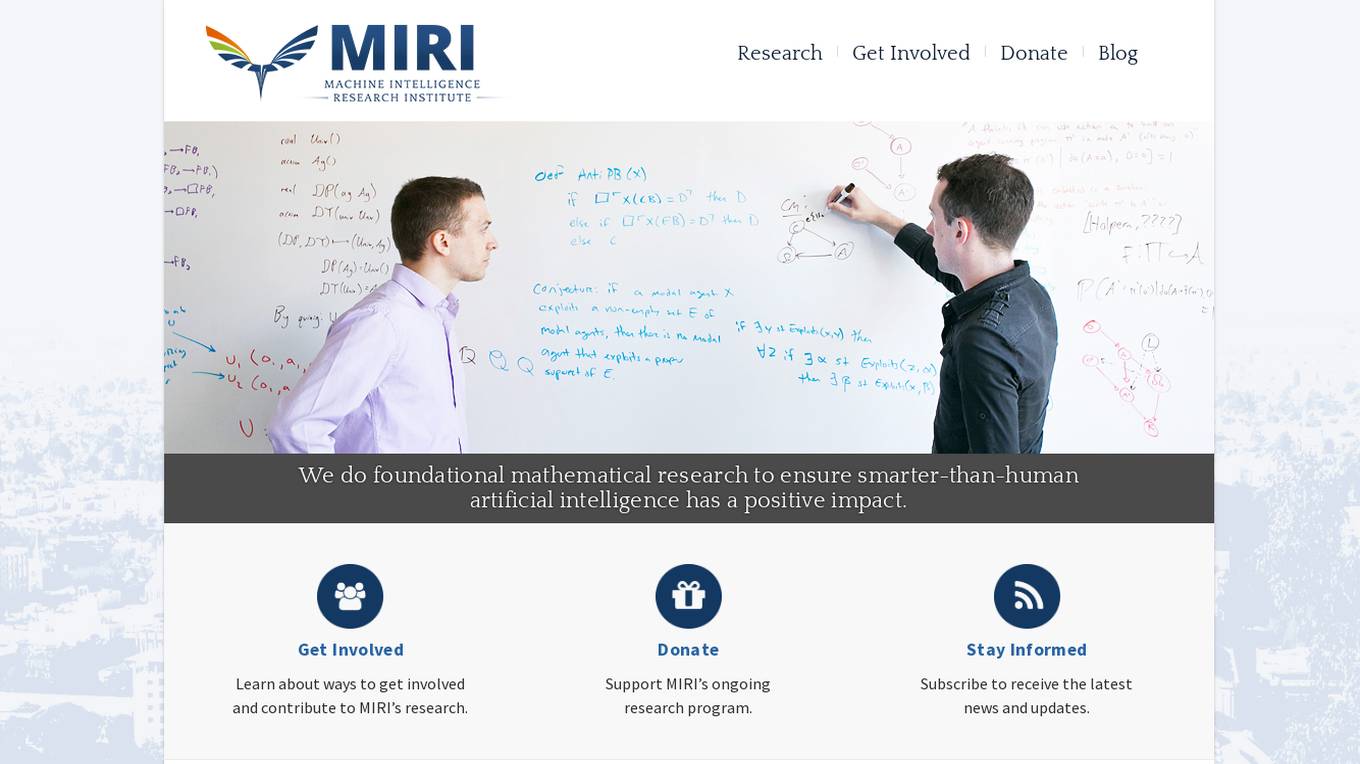
MIRI (Machine Intelligence Research Institute)
MIRI (Machine Intelligence Research Institute) is a non-profit research organization dedicated to ensuring that artificial intelligence has a positive impact on humanity. MIRI conducts foundational mathematical research on topics such as decision theory, game theory, and reinforcement learning, with the goal of developing new insights into how to build safe and beneficial AI systems.
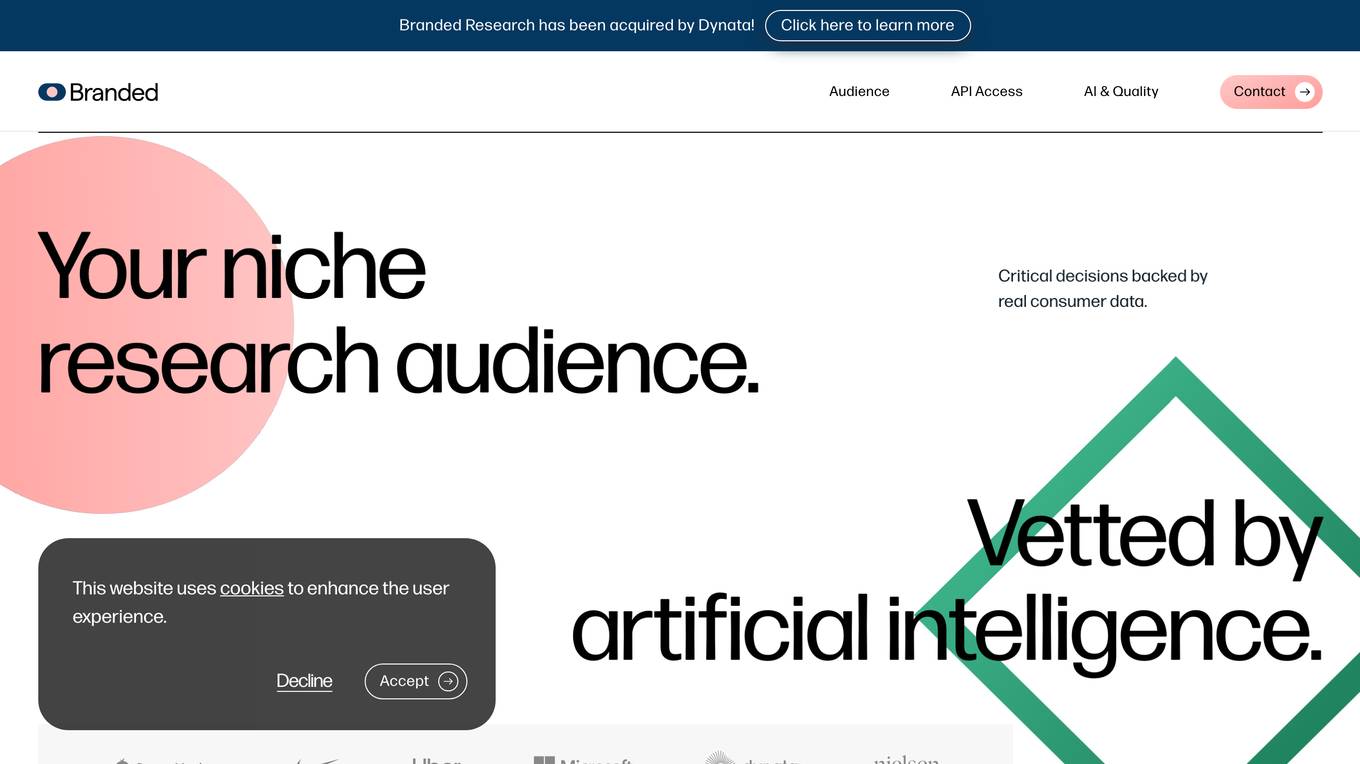
Branded Research
Branded Research, acquired by Dynata, provides access to AI-verified audience insights. It offers a range of research methods, including surveys, webcam studies, and emotional AI. With its advanced algorithms and extensive profiling, Branded helps businesses connect with their target audience and gain valuable insights to drive innovation. The company serves various industries, including tech, consumer goods, healthcare, and research agencies.
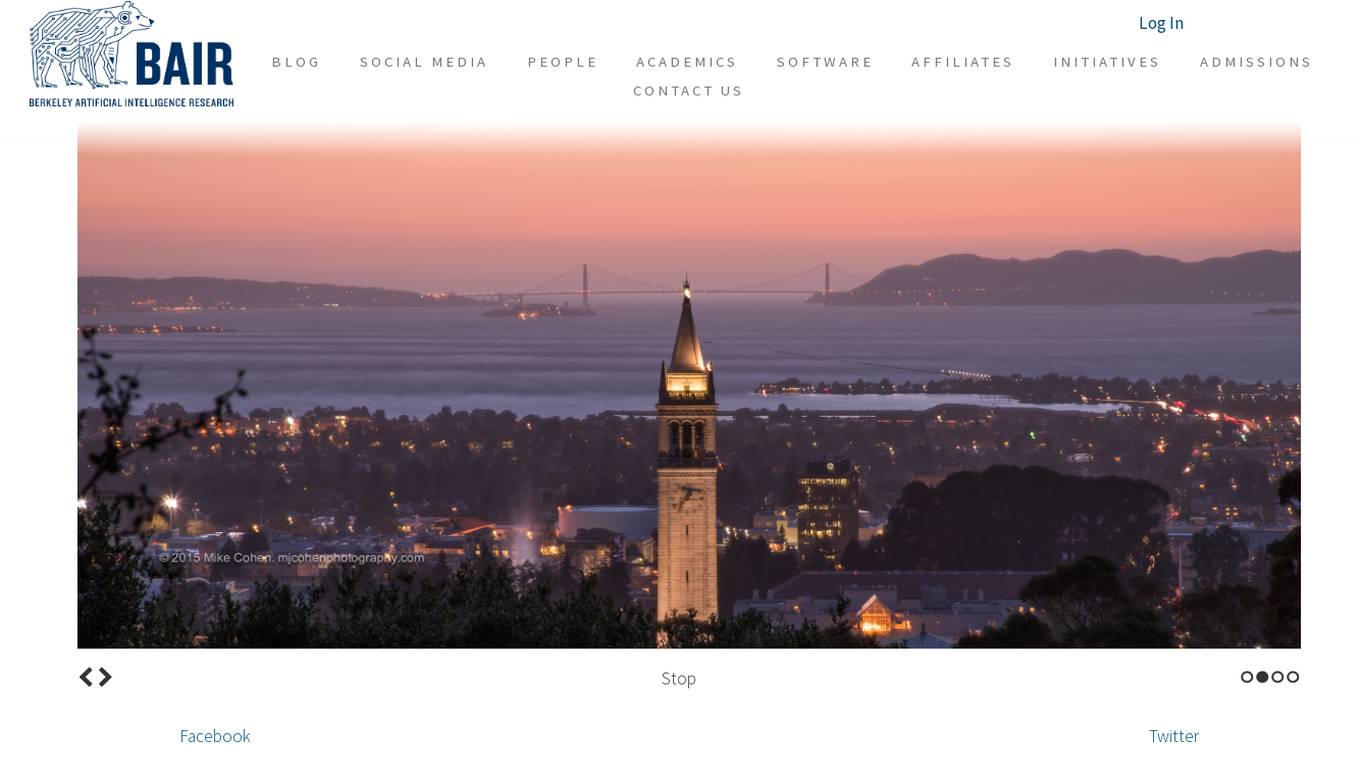
Berkeley Artificial Intelligence Research (BAIR) Lab
The Berkeley Artificial Intelligence Research (BAIR) Lab is a renowned research lab at UC Berkeley focusing on computer vision, machine learning, natural language processing, planning, control, and robotics. With over 50 faculty members and 300 graduate students, BAIR conducts research on fundamental advances in AI and interdisciplinary themes like multi-modal deep learning and human-compatible AI.

AIM Research
AIM Research is a leading platform providing insights and analysis on the Artificial Intelligence industry. The website offers a comprehensive range of resources, including research reports, event coverage, news articles, and expert opinions. AIM Research focuses on highlighting the latest trends, innovations, and key players in the AI sector, catering to professionals, researchers, and enthusiasts seeking in-depth knowledge and understanding of AI technologies and applications.
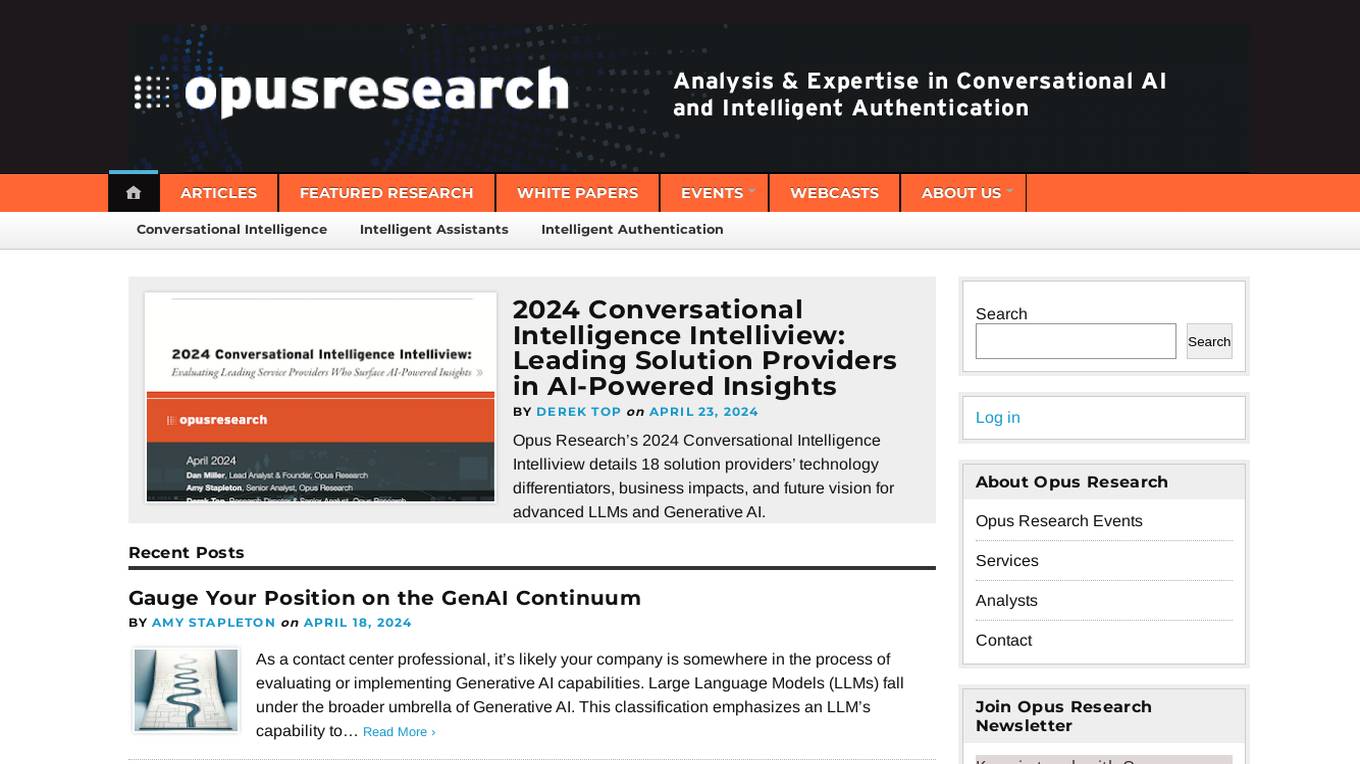
Opus Research
Opus Research is a leading provider of market research, consulting, and advisory services to the global digital communications and collaboration sectors. The company's research focuses on the convergence of emerging technologies, including artificial intelligence (AI), machine learning (ML), and natural language processing (NLP), with the communications and collaboration industries.
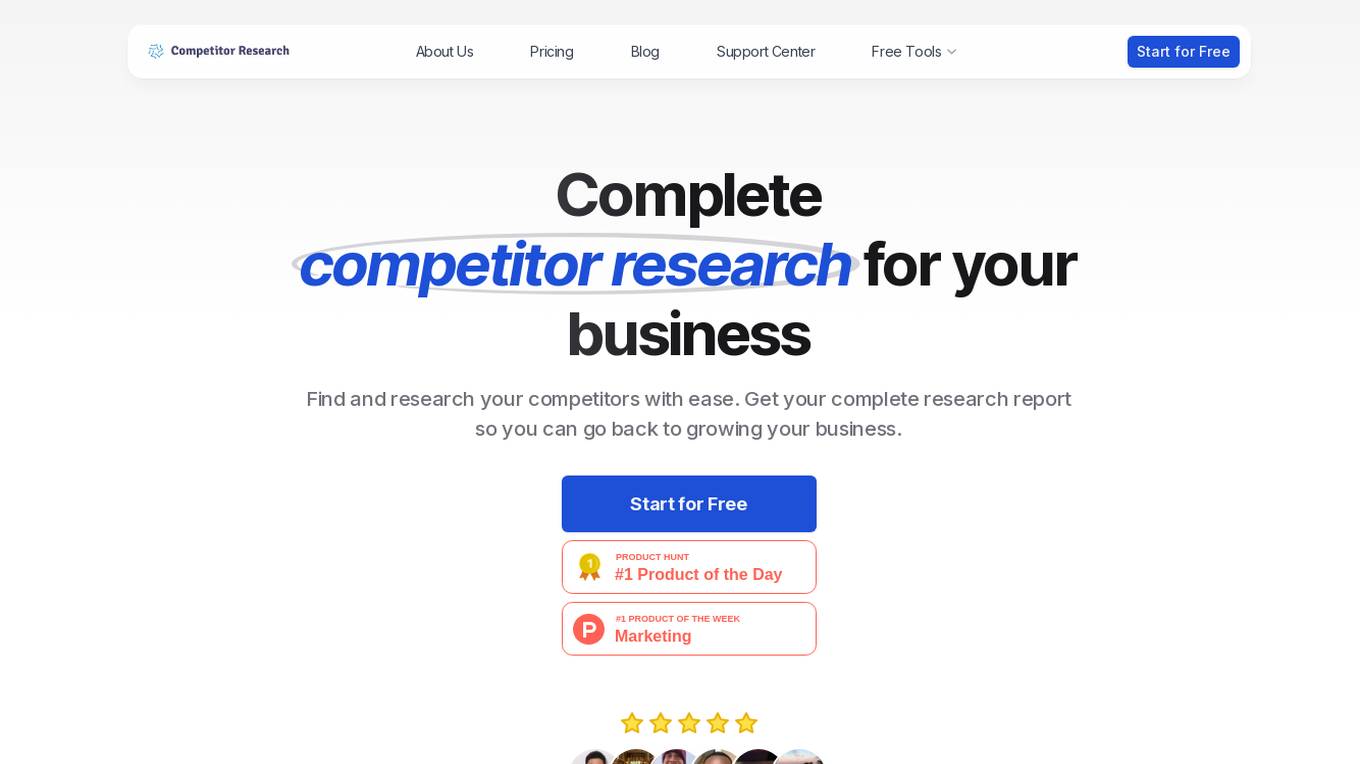
Competitor Research
Competitor Research is an AI-powered tool that helps businesses analyze and understand their competitors. It provides a comprehensive research report on direct, indirect, substitute, and potential competitors, including insights on search traffic, keywords, backlinks, target audience, pricing strategy, website performance, and customer engagement. The tool uses AI to save time and deliver actionable insights to help businesses grow and stay ahead of the competition.
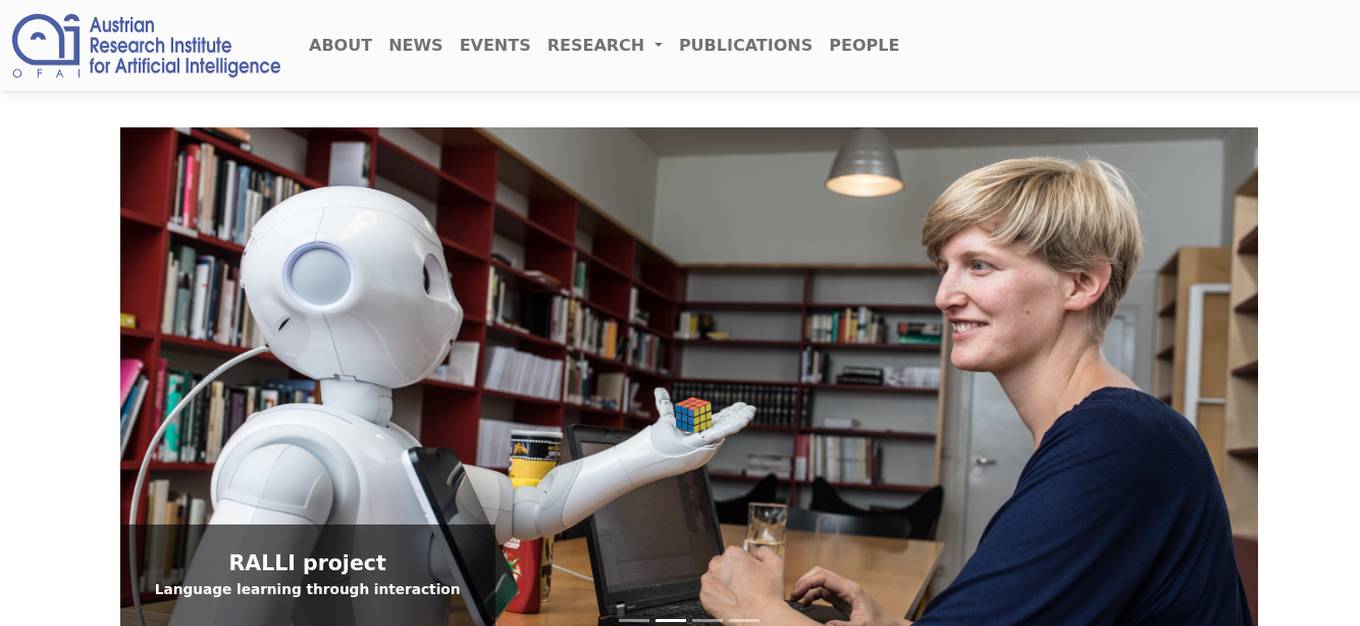
Austrian Research Institute for Artificial Intelligence
The Austrian Research Institute for Artificial Intelligence (OFAI) is a renowned institute based in Vienna, Austria, with a focus on AI research and development. With over 40 years of excellence in artificial intelligence, OFAI is dedicated to advancing language learning, computational linguistics, and AI applications. The institute collaborates on various projects, software development, and publications, contributing significantly to the field of AI. OFAI's work encompasses a wide range of research areas and resources, aiming to explore the potential of AI in different domains.
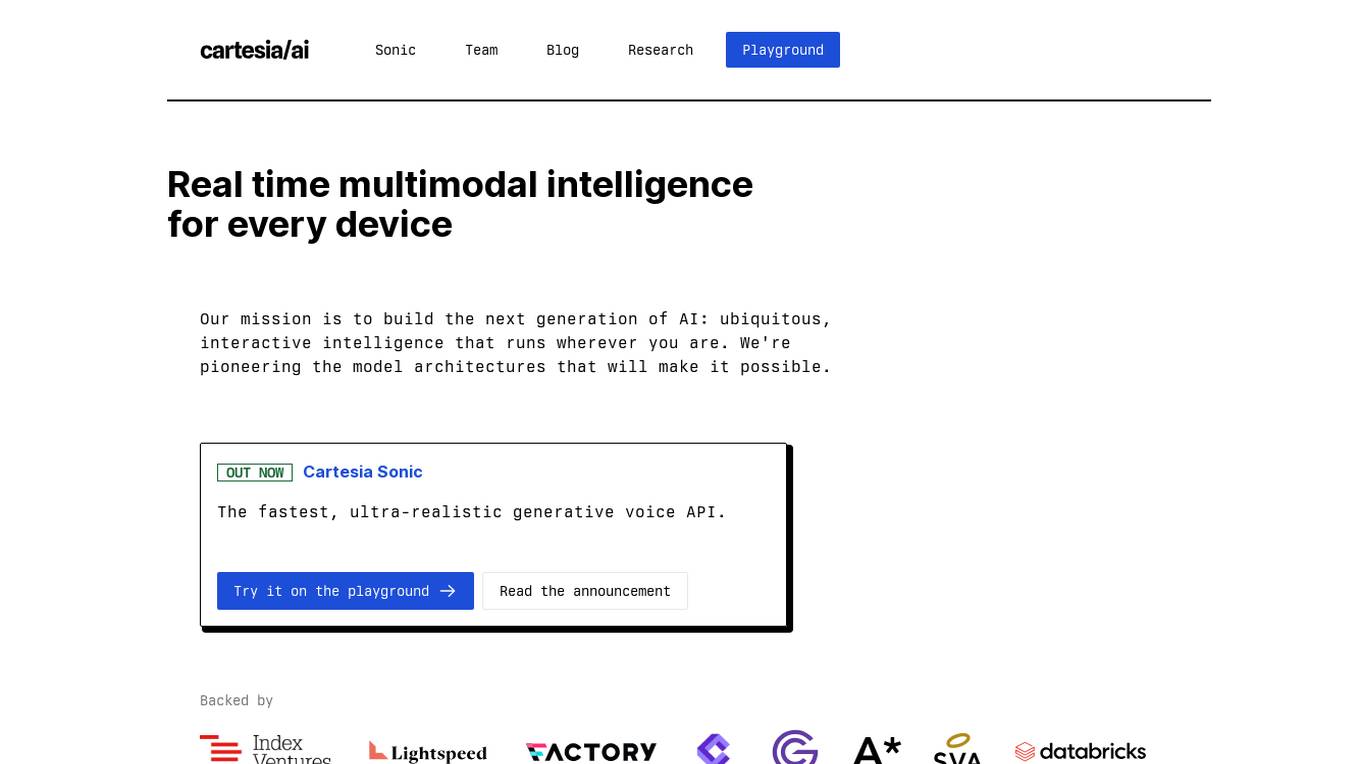
Cartesia Sonic Team Blog Research Playground
Cartesia Sonic Team Blog Research Playground is an AI application that offers real-time multimodal intelligence for every device. The application aims to build the next generation of AI by providing ubiquitous, interactive intelligence that can run on any device. It features the fastest, ultra-realistic generative voice API and is backed by research on simple linear attention language models and state-space models. The founding team, who met at the Stanford AI Lab, has invented State Space Models (SSMs) and scaled it up to achieve state-of-the-art results in various modalities such as text, audio, video, images, and time-series data.
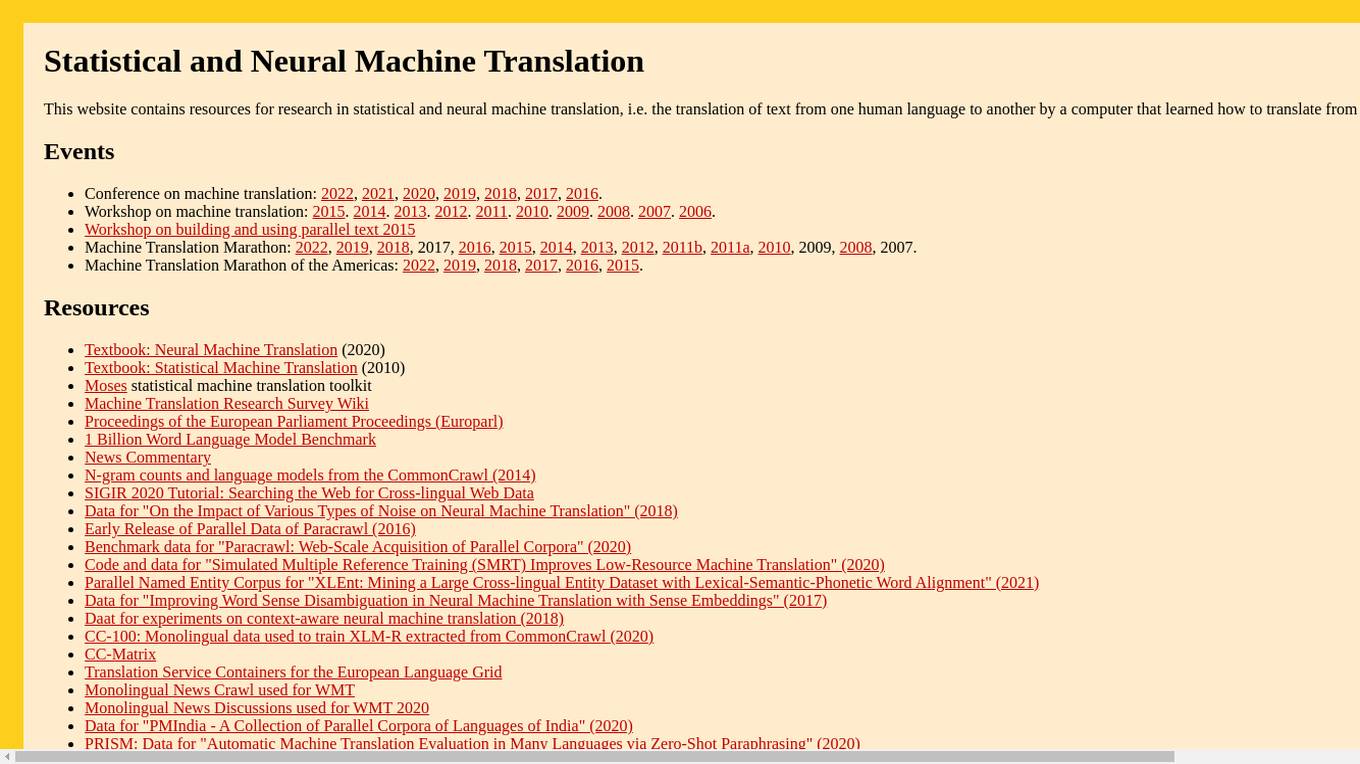
Machine Translation Research Hub
This website is a comprehensive resource for research in statistical and neural machine translation. It provides information, tools, and datasets related to the translation of text from one human language to another using computer algorithms trained on vast amounts of translated text.
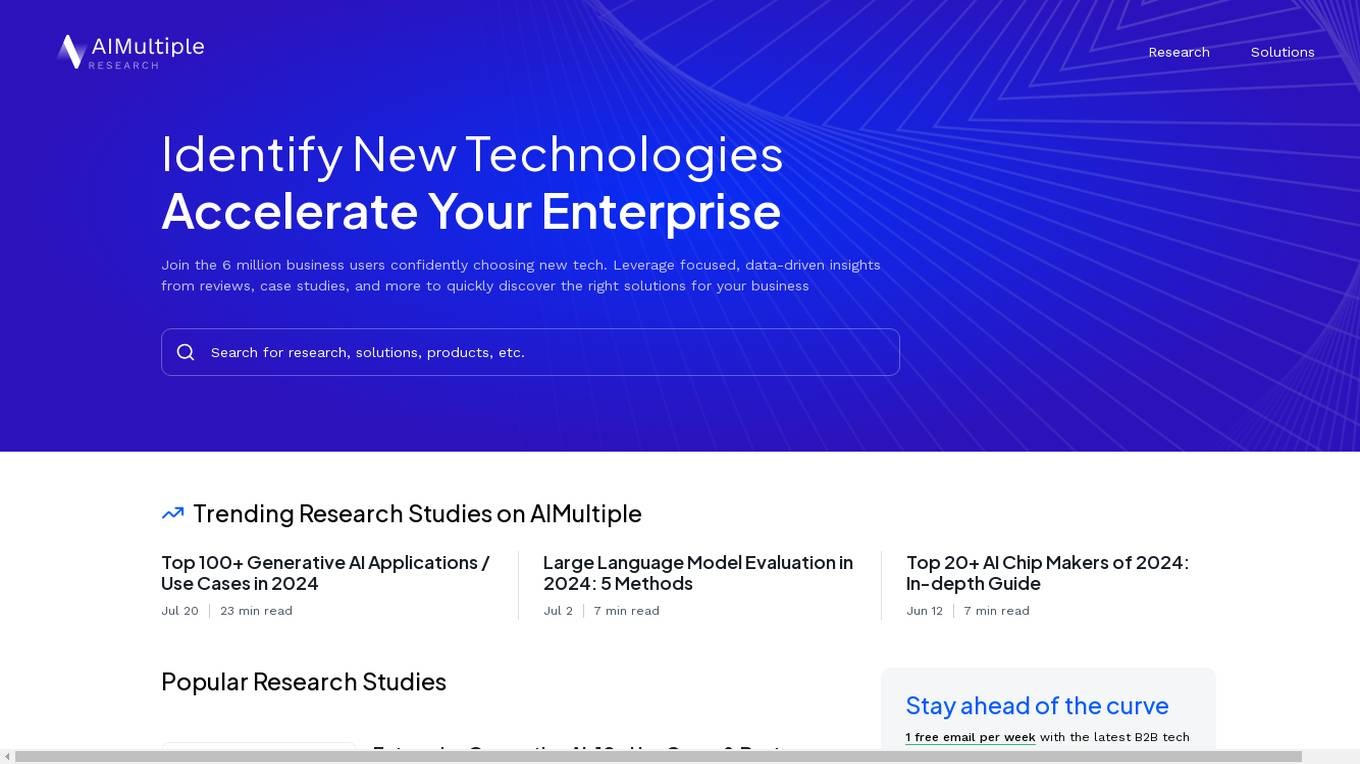
Enterprise AI Solutions
The website is an AI tool that offers a wide range of AI, software, and tools for enterprise growth and automation. It provides solutions in areas such as AI hardware, automation, application security, CRM, cloud services, data management, generative AI, network monitoring, process intelligence, proxies, remote monitoring, surveys, sustainability, workload automation, and more. The platform aims to help businesses leverage AI technologies to enhance efficiency, security, and productivity across various industries.
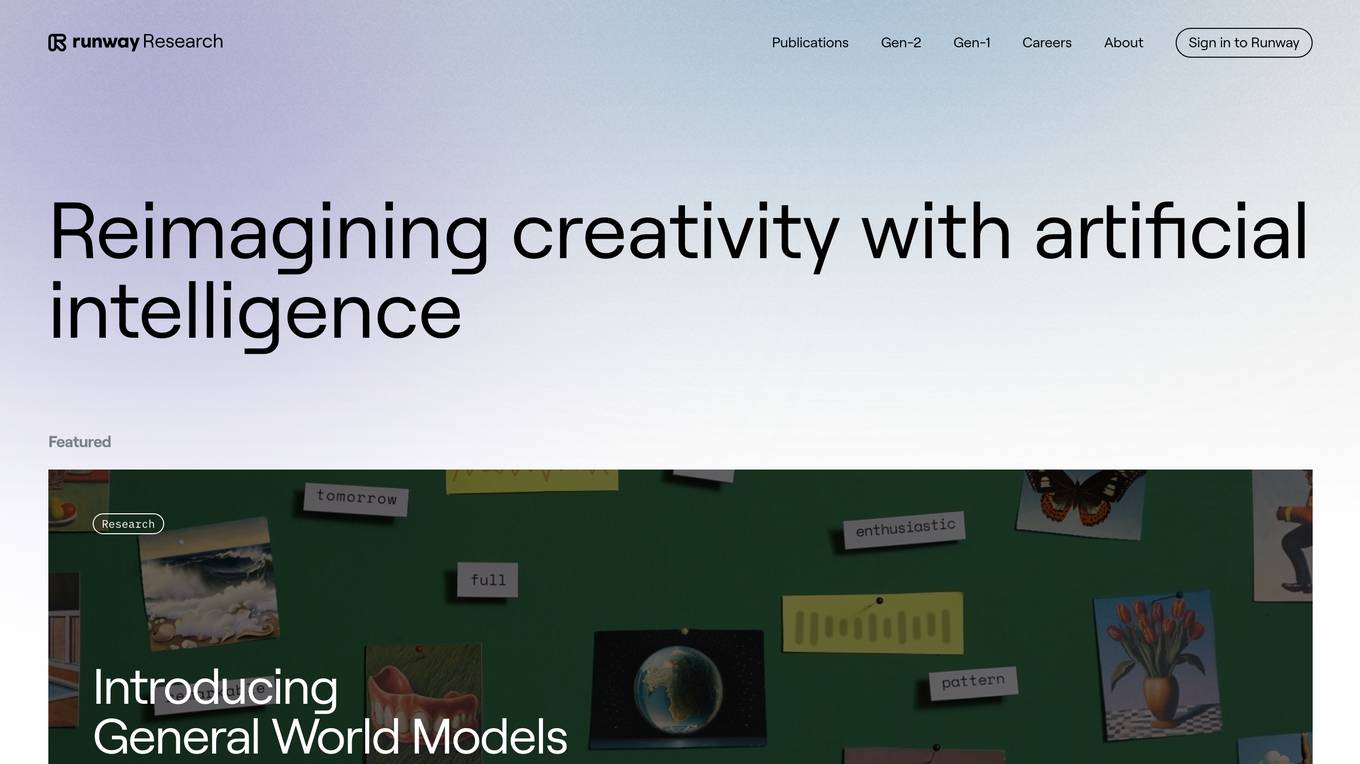
Runway
Runway is a platform that provides tools and resources for artists and researchers to create and explore artificial intelligence-powered creative applications. The platform includes a library of pre-trained models, a set of tools for building and training custom models, and a community of users who share their work and collaborate on projects. Runway's mission is to make AI more accessible and understandable, and to empower artists and researchers to create new and innovative forms of creative expression.
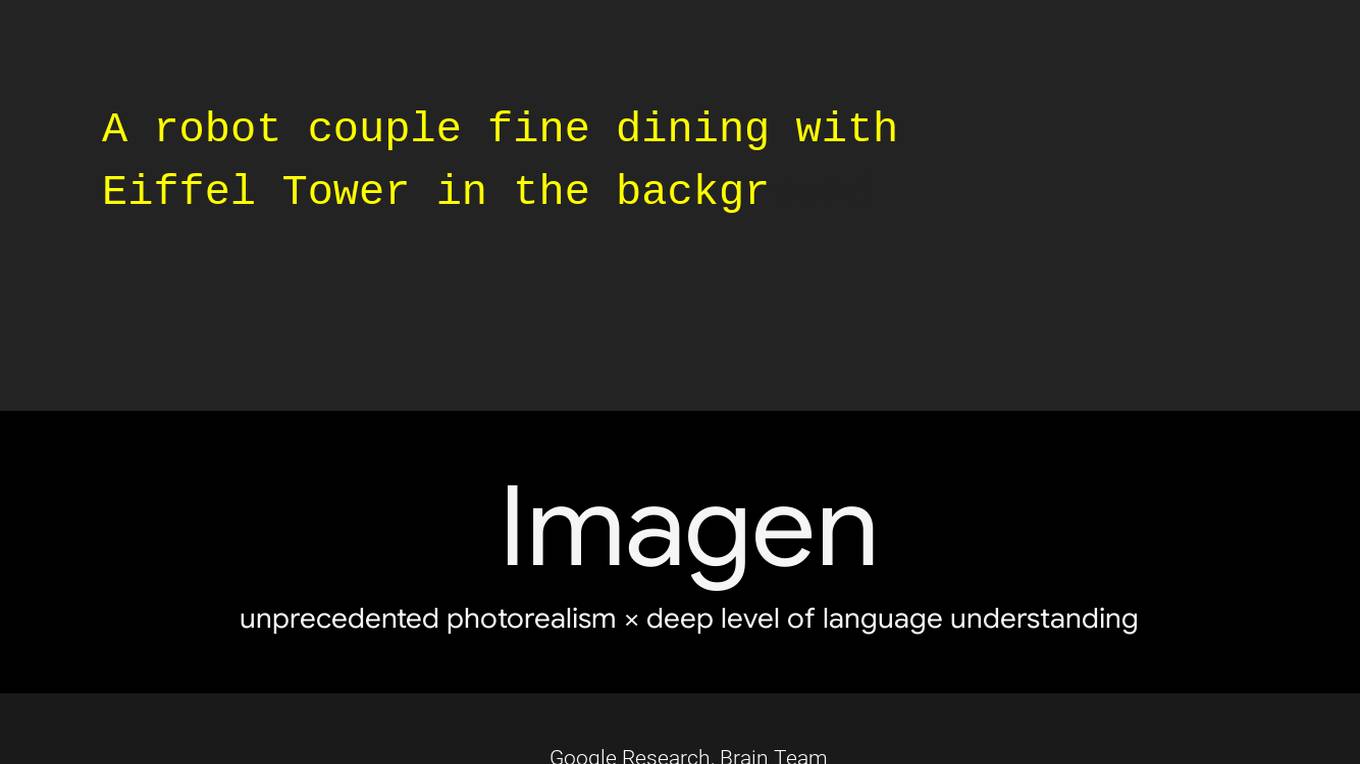
Imagen
Imagen is an AI application that leverages text-to-image diffusion models to create photorealistic images based on input text. The application utilizes large transformer language models for text understanding and diffusion models for high-fidelity image generation. Imagen has achieved state-of-the-art results in terms of image fidelity and alignment with text. The application is part of Google Research's text-to-image work and focuses on encoding text for image synthesis effectively.
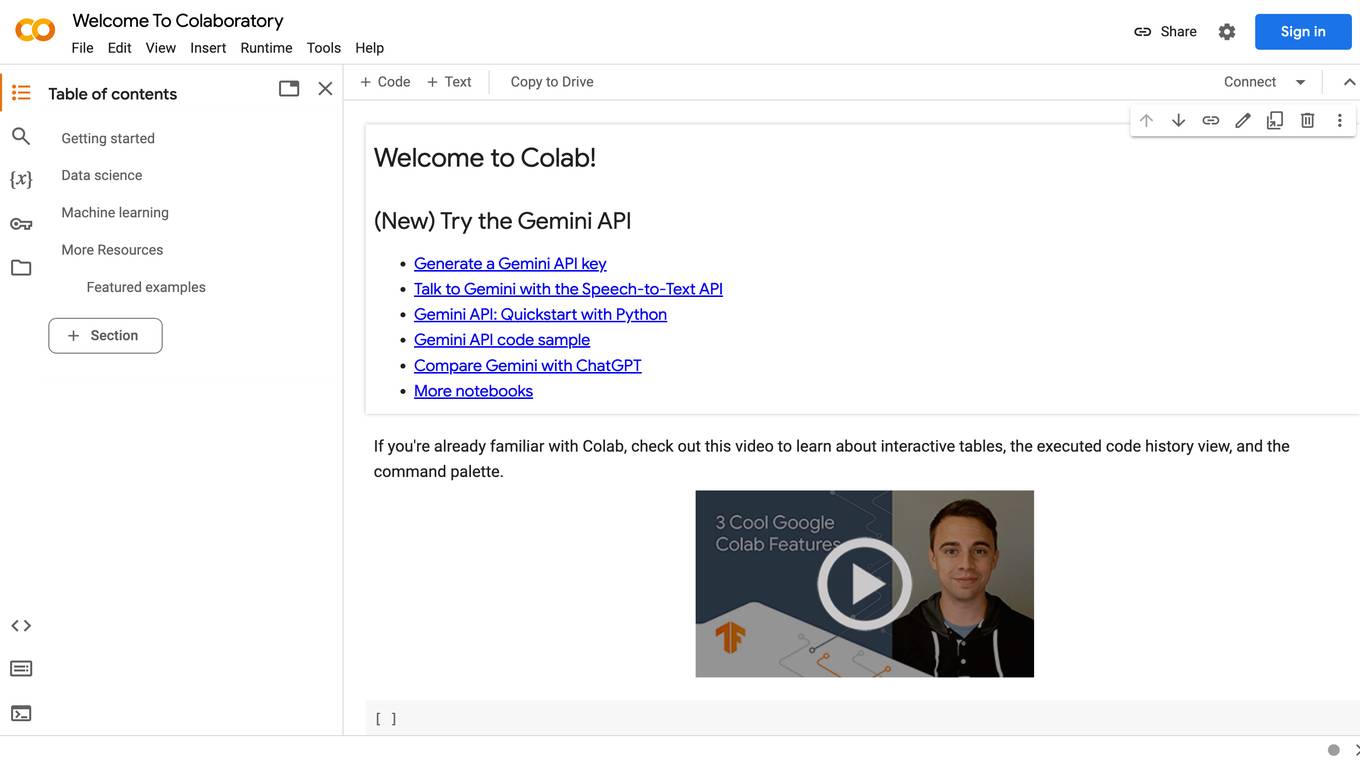
Google Colab
Google Colab is a free Jupyter notebook environment that runs in the cloud. It allows you to write and execute Python code without having to install any software or set up a local environment. Colab notebooks are shareable, so you can easily collaborate with others on projects.
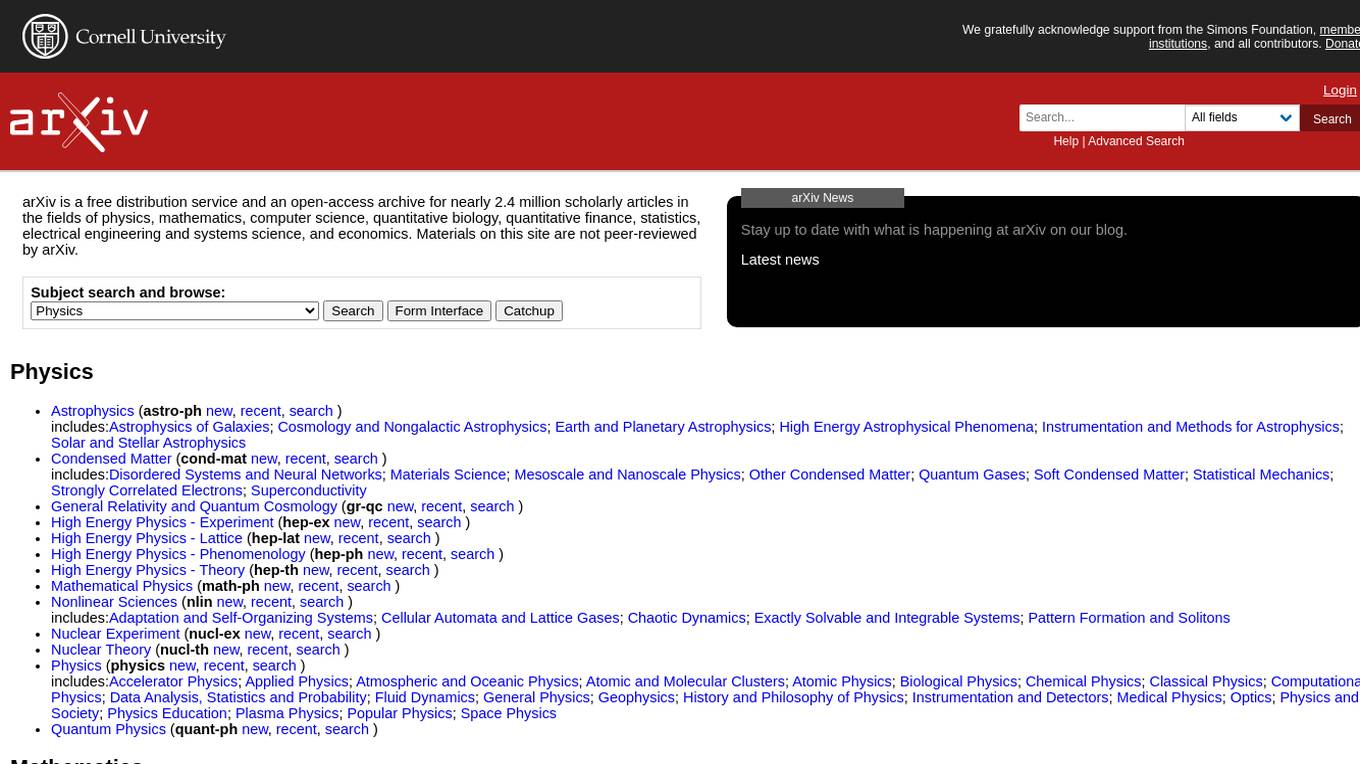
arXiv
arXiv.org is a free distribution service and an open-access archive for nearly 2.4 million scholarly articles in the fields of physics, mathematics, computer science, quantitative biology, quantitative finance, statistics, electrical engineering and systems science, and economics. Materials on this site are not peer-reviewed by arXiv.
0 - Open Source AI Tools
20 - OpenAI Gpts
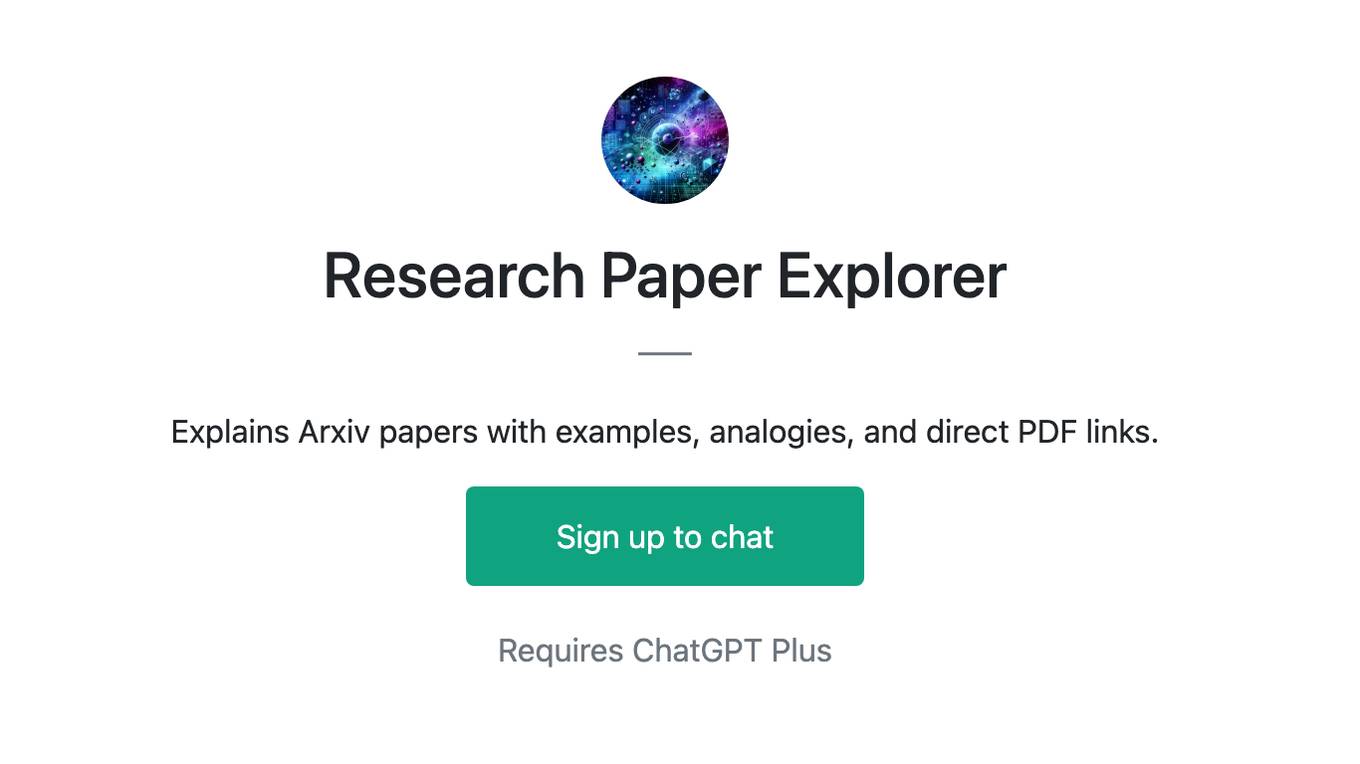
Research Paper Explorer
Explains Arxiv papers with examples, analogies, and direct PDF links.
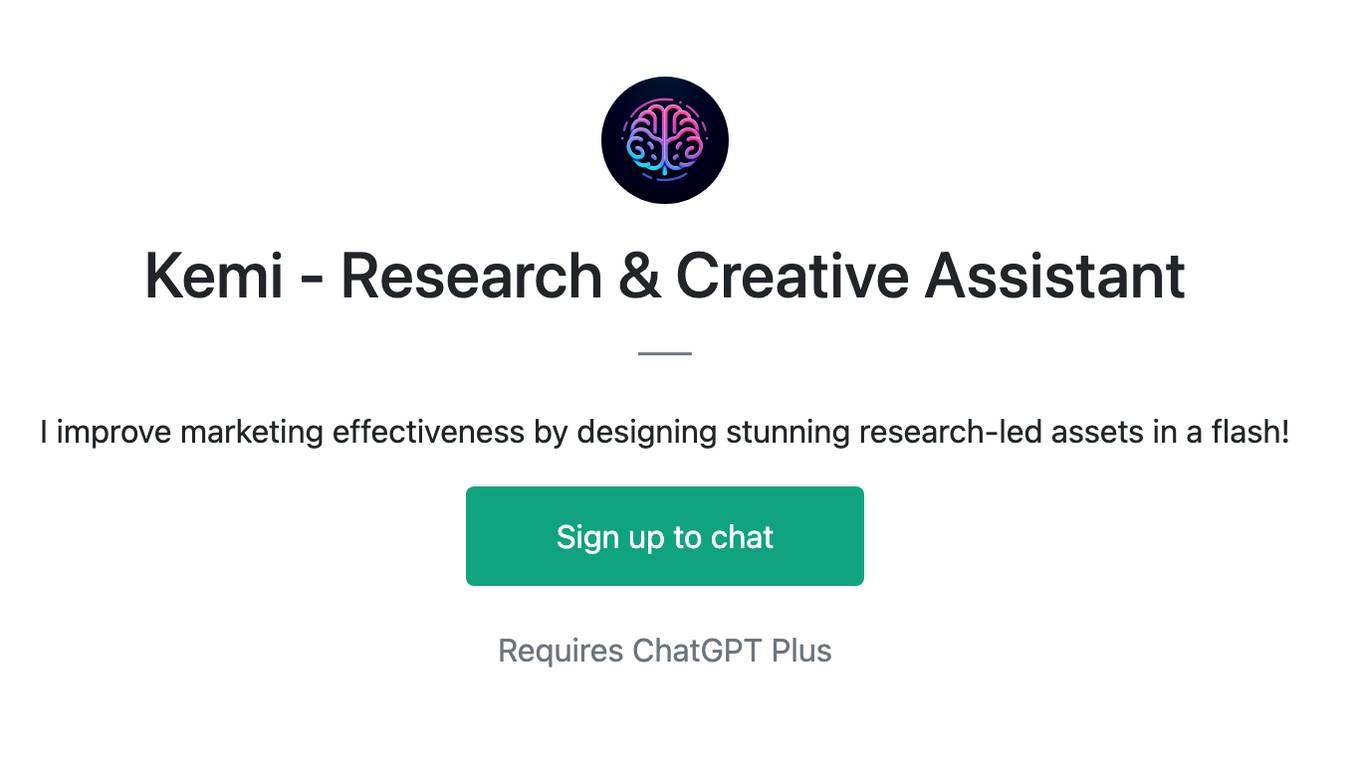
Kemi - Research & Creative Assistant
I improve marketing effectiveness by designing stunning research-led assets in a flash!
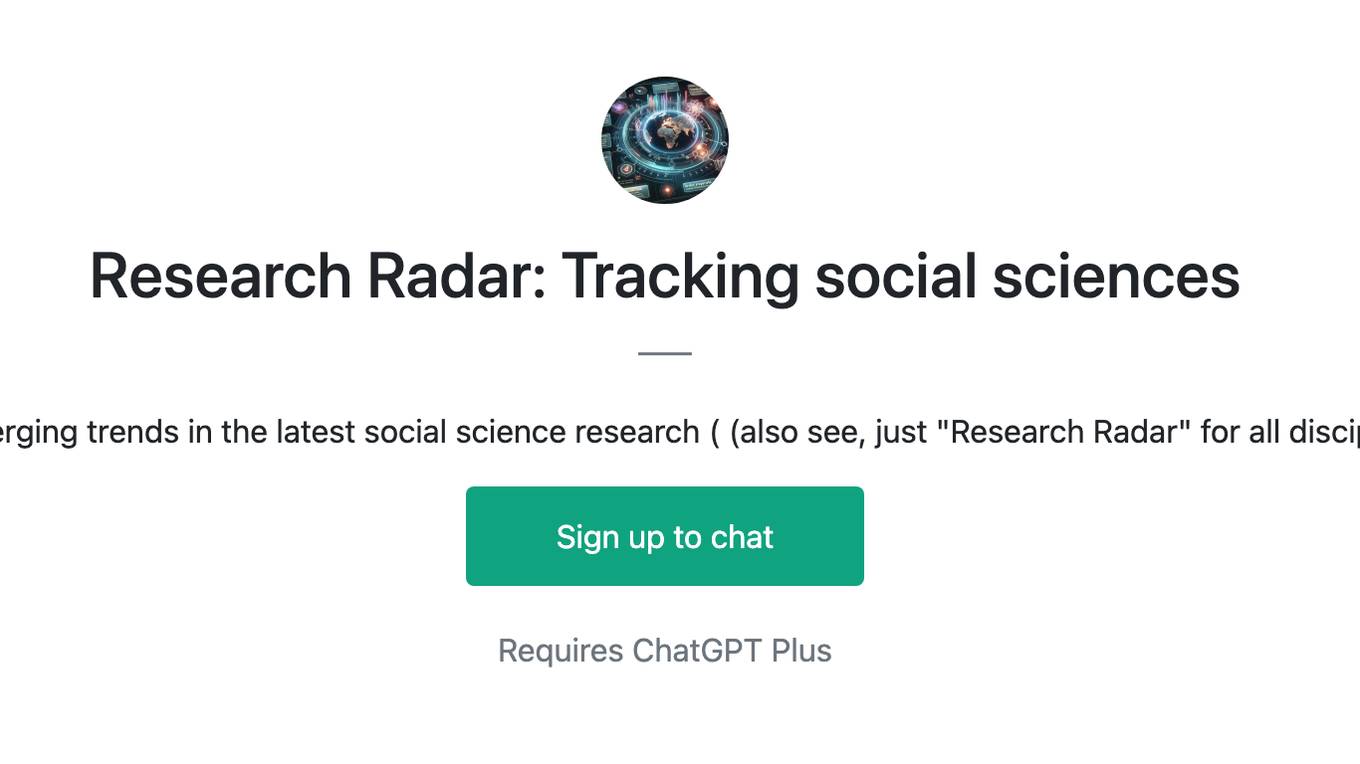
Research Radar: Tracking social sciences
Spot emerging trends in the latest social science research ( (also see, just "Research Radar" for all disciplines))
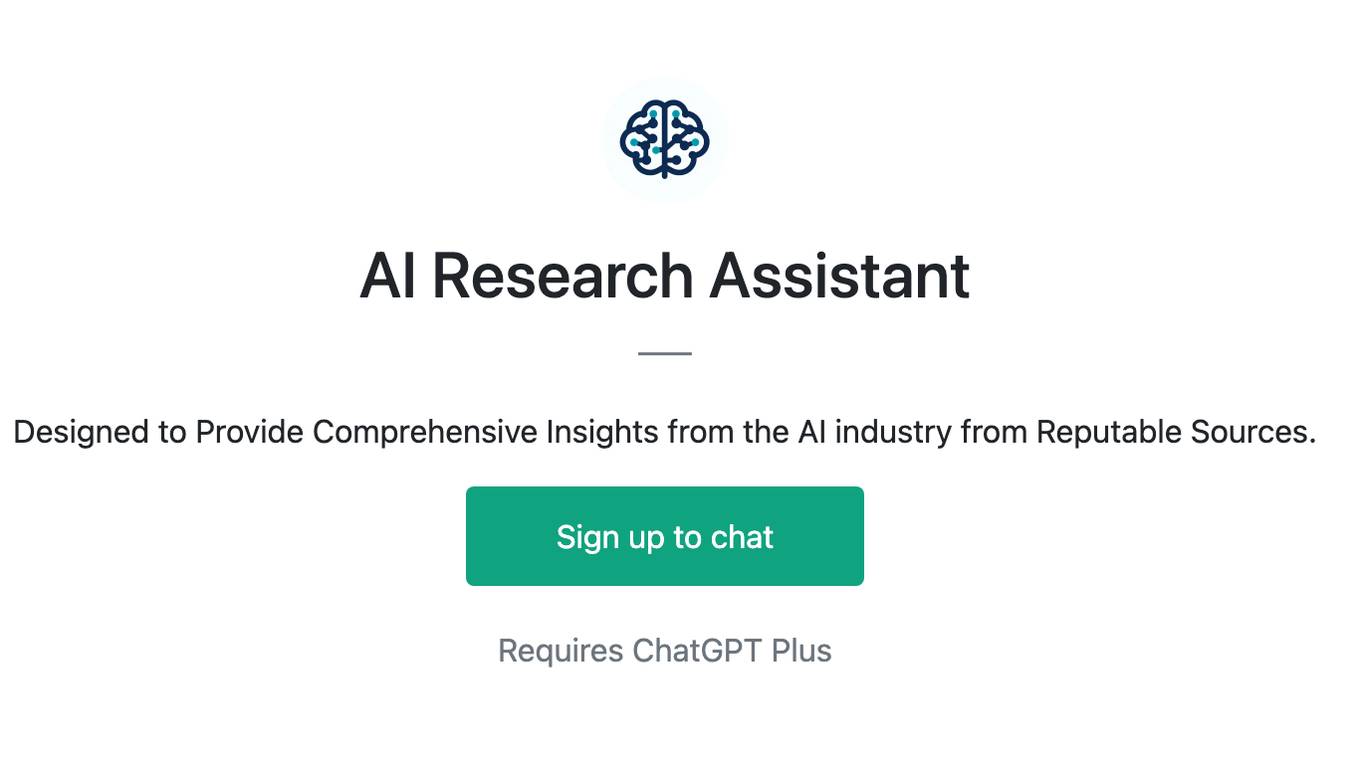
AI Research Assistant
Designed to Provide Comprehensive Insights from the AI industry from Reputable Sources.
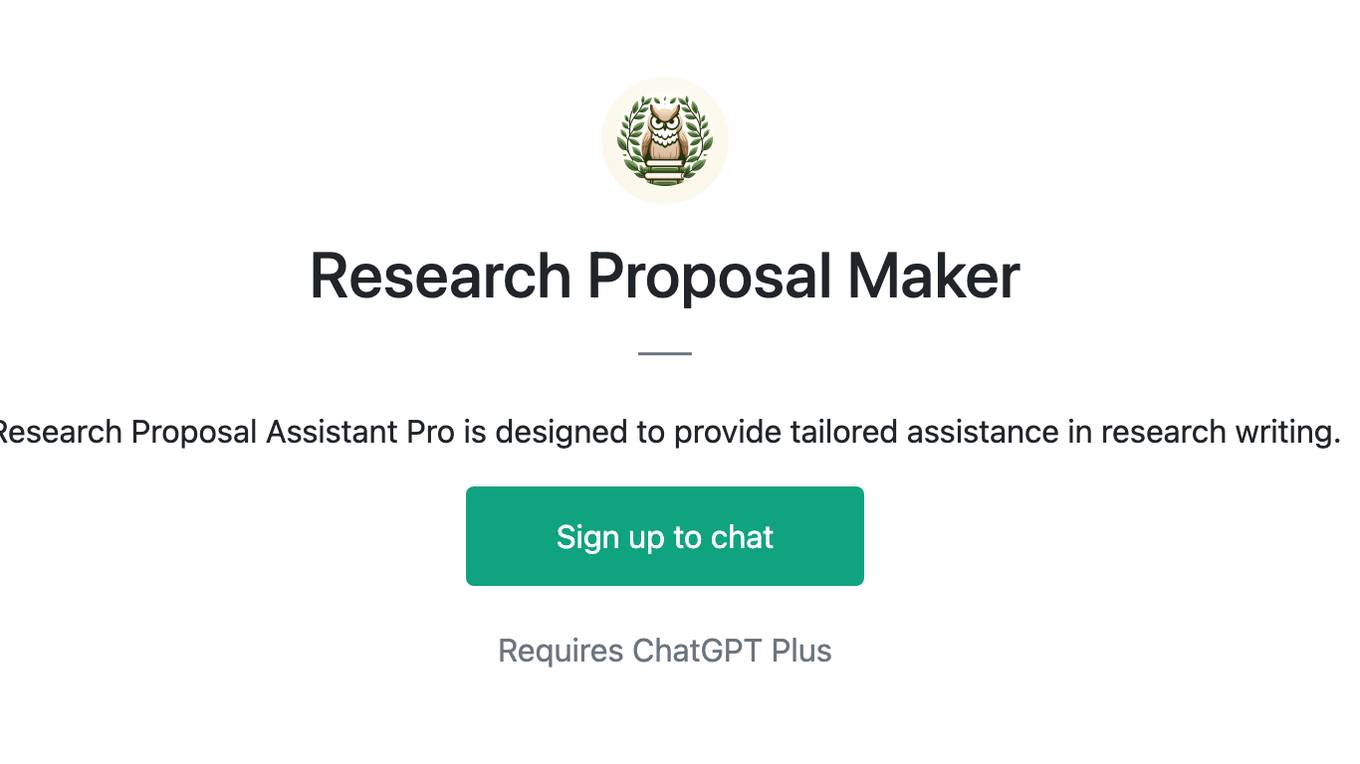
Research Proposal Maker
Research Proposal Assistant Pro is designed to provide tailored assistance in research writing.
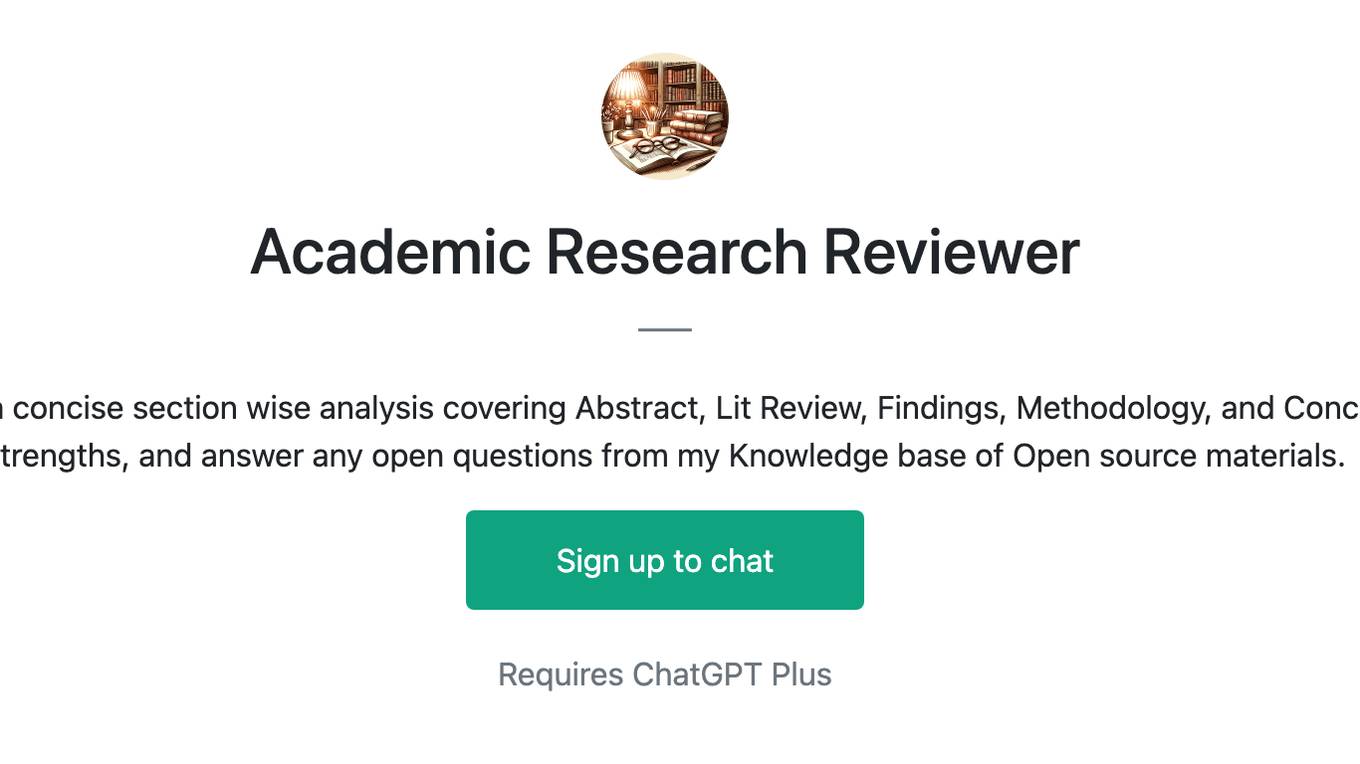
Academic Research Reviewer
Upon uploading a research paper, I provide a concise section wise analysis covering Abstract, Lit Review, Findings, Methodology, and Conclusion. I also critique the work, highlight its strengths, and answer any open questions from my Knowledge base of Open source materials.
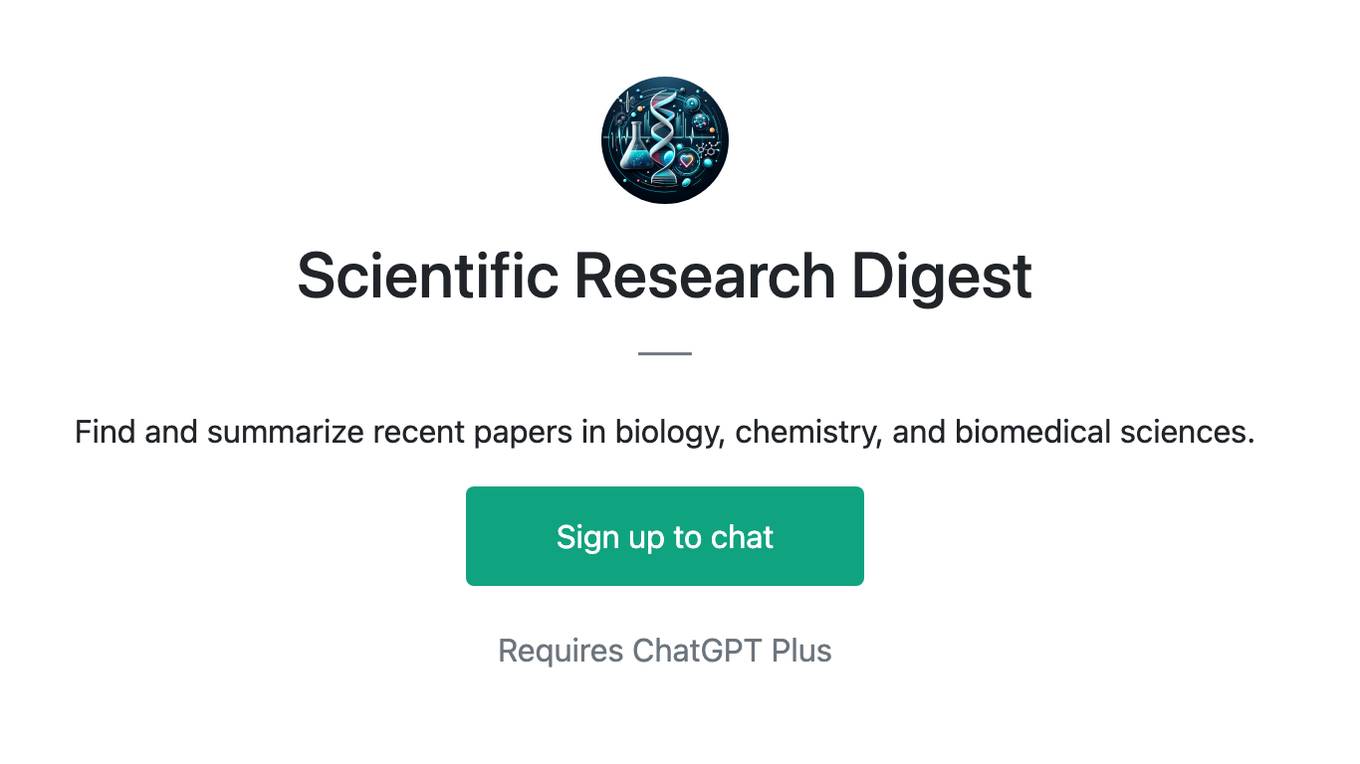
Scientific Research Digest
Find and summarize recent papers in biology, chemistry, and biomedical sciences.
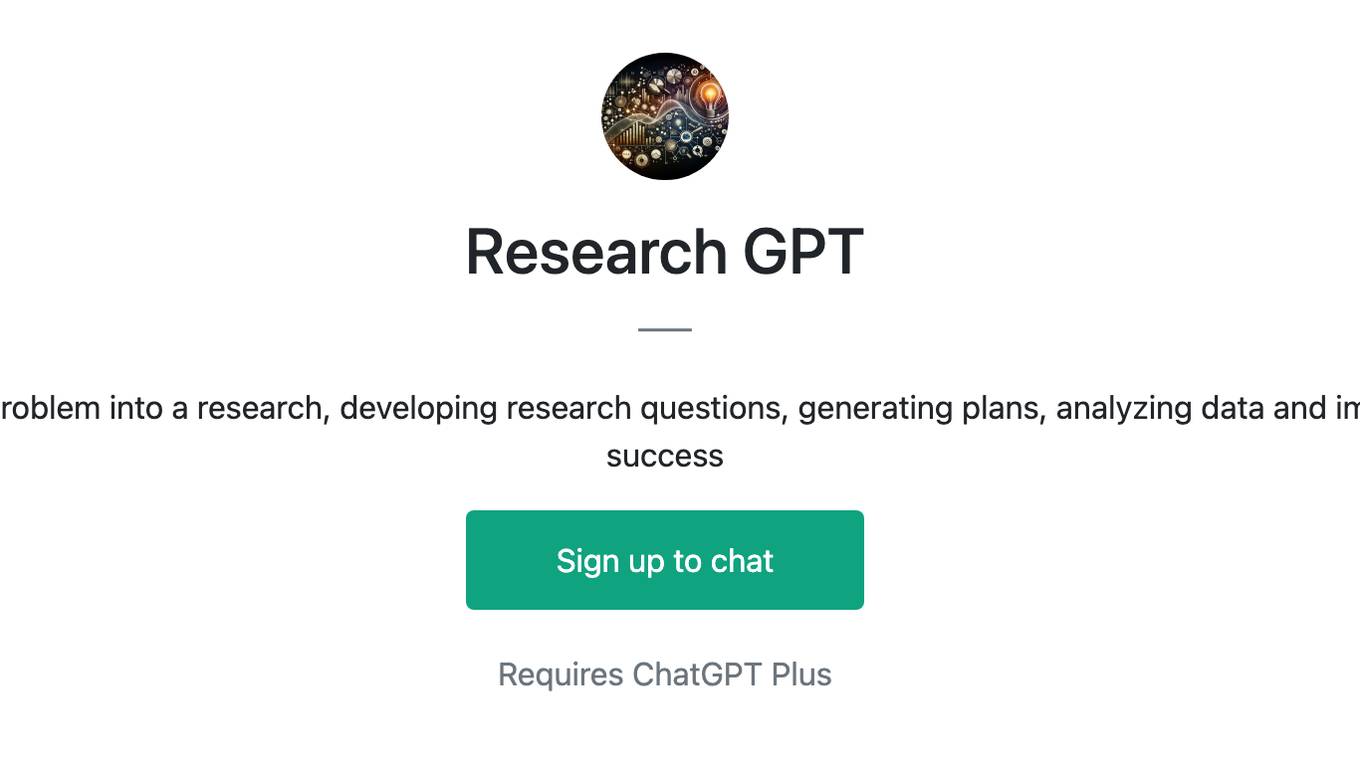
Research GPT
Your AI research assistant, for turning a problem into a research, developing research questions, generating plans, analyzing data and improving research workflows for project success
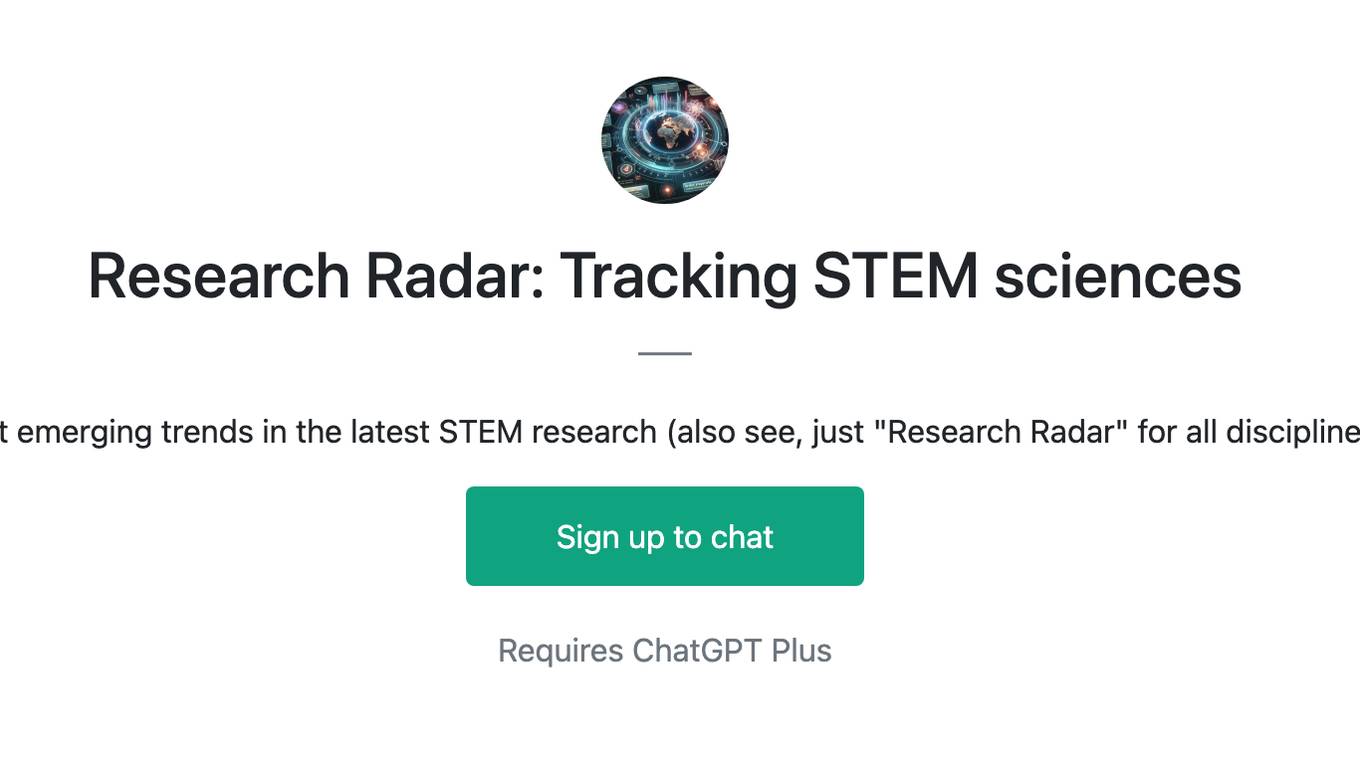
Research Radar: Tracking STEM sciences
Spot emerging trends in the latest STEM research (also see, just "Research Radar" for all disciplines)
